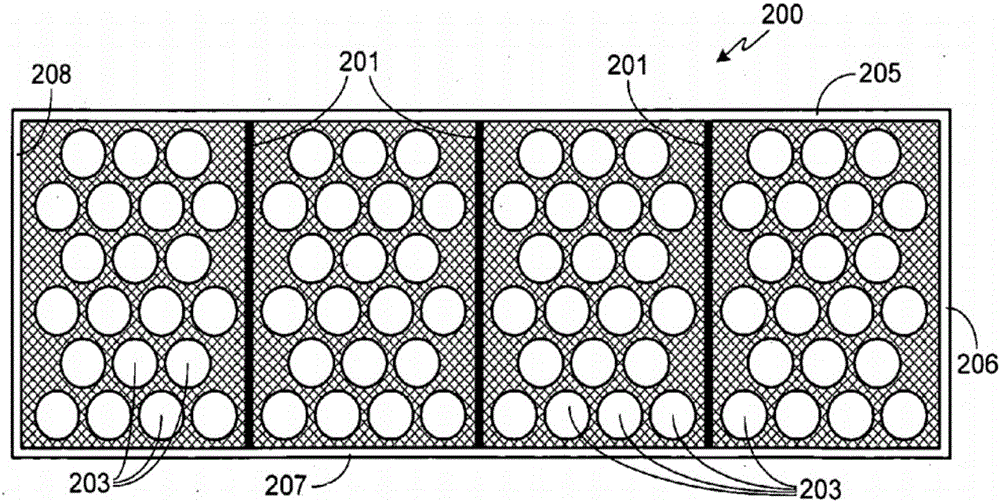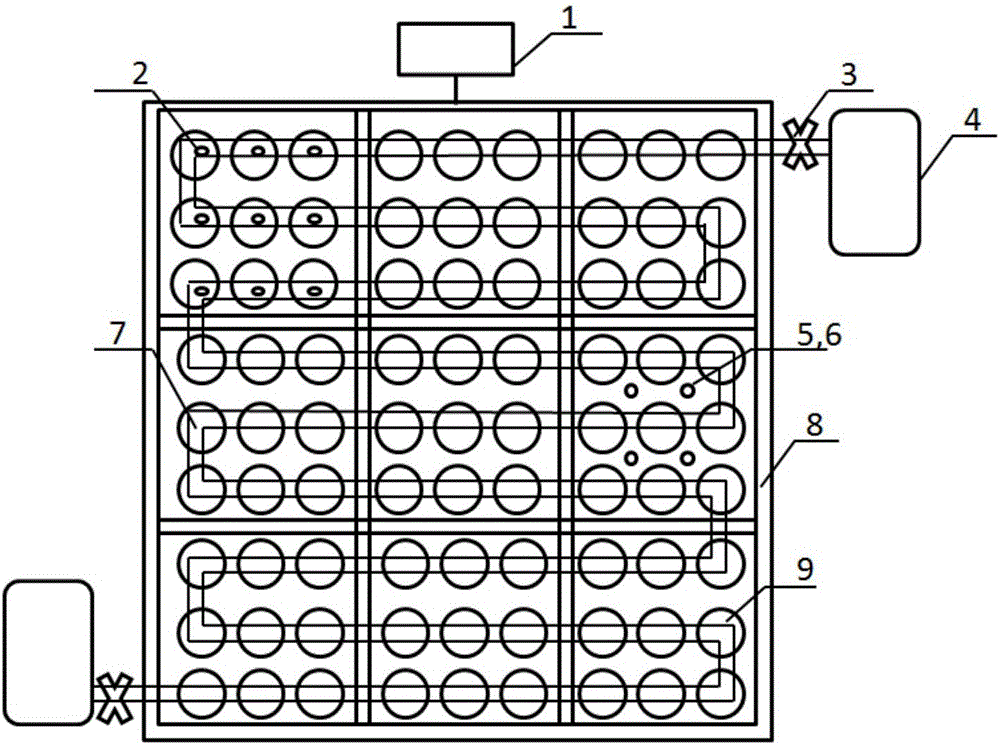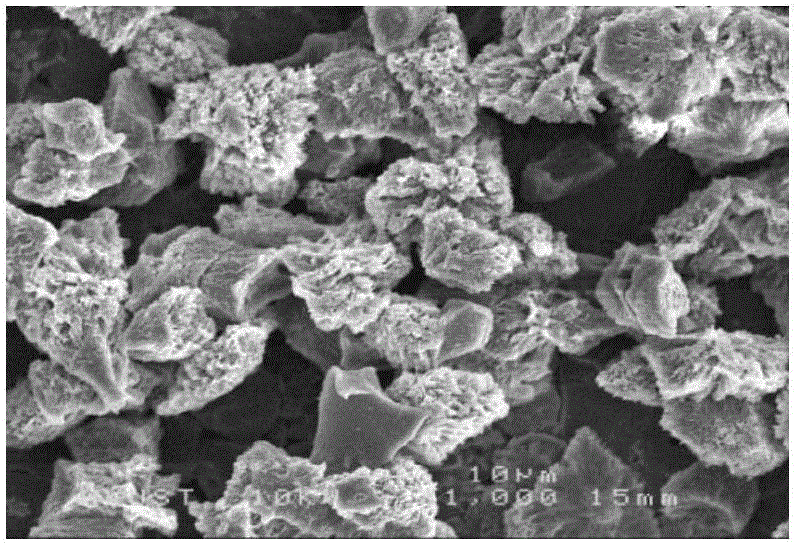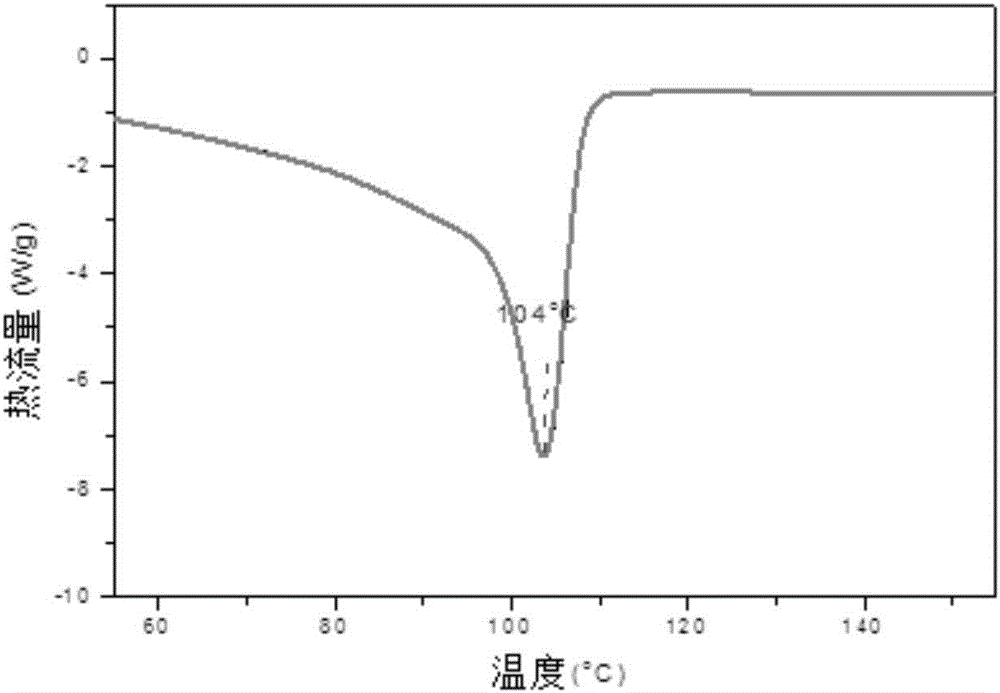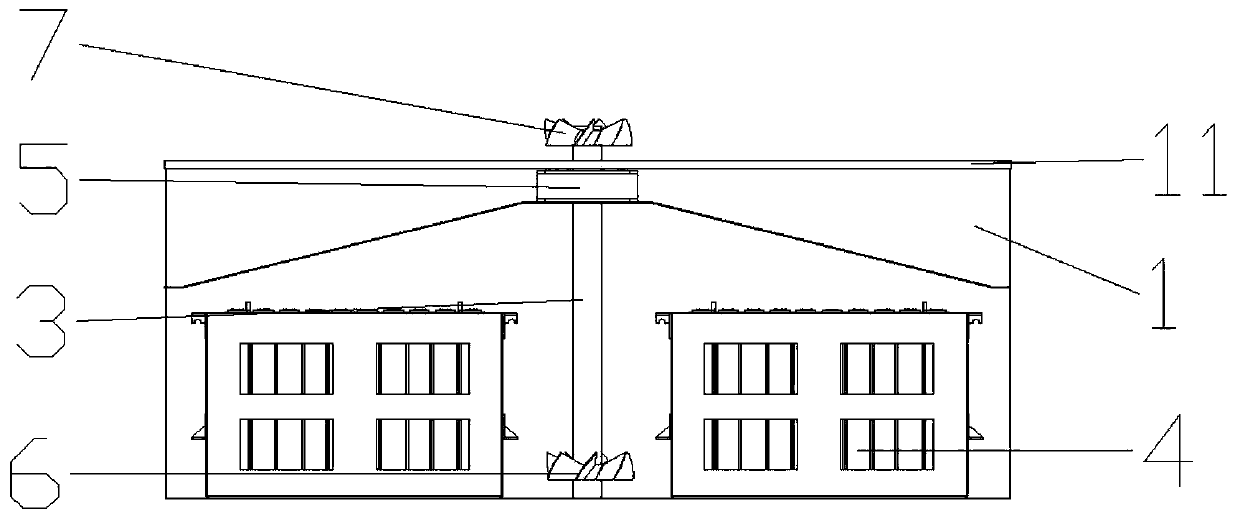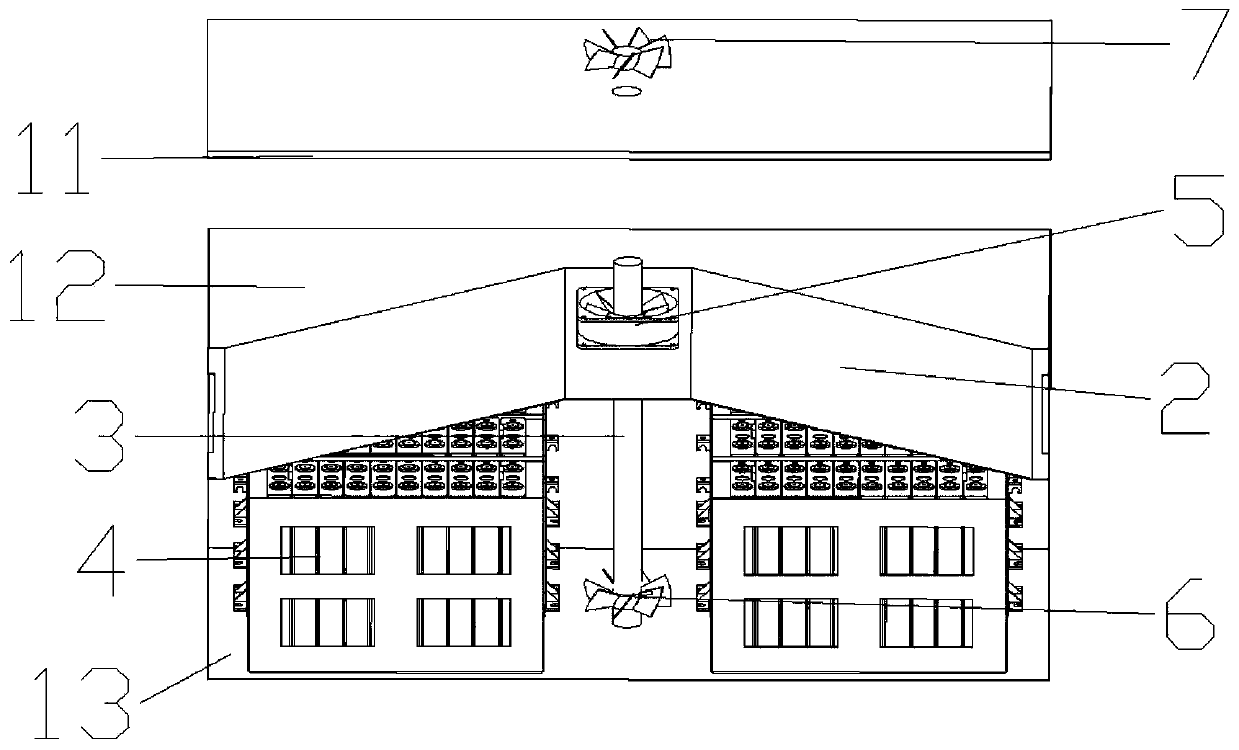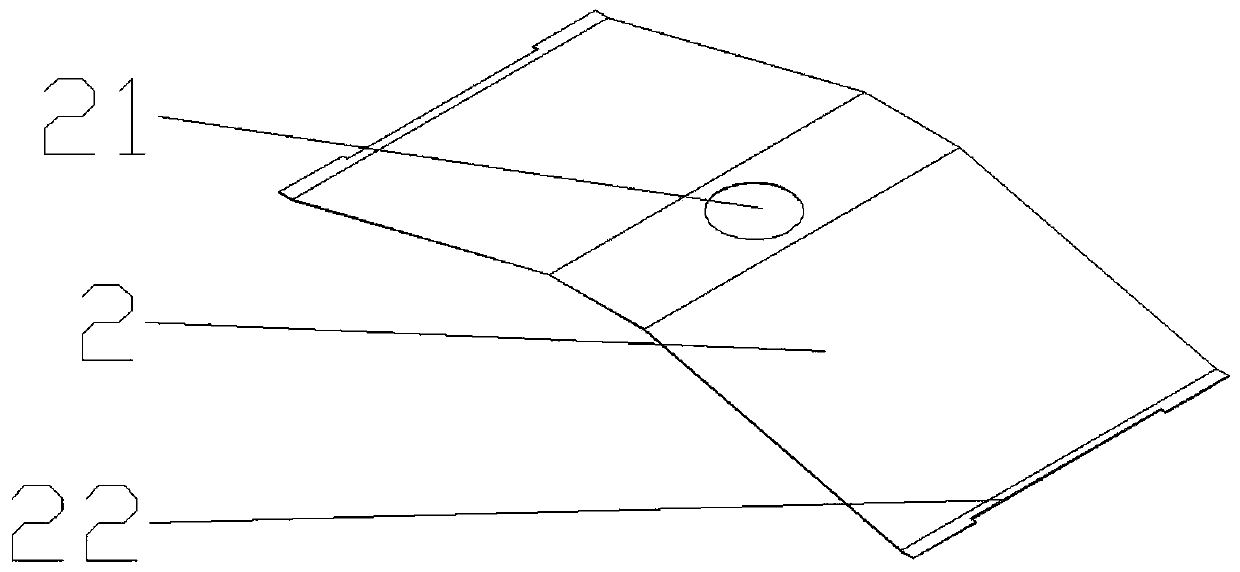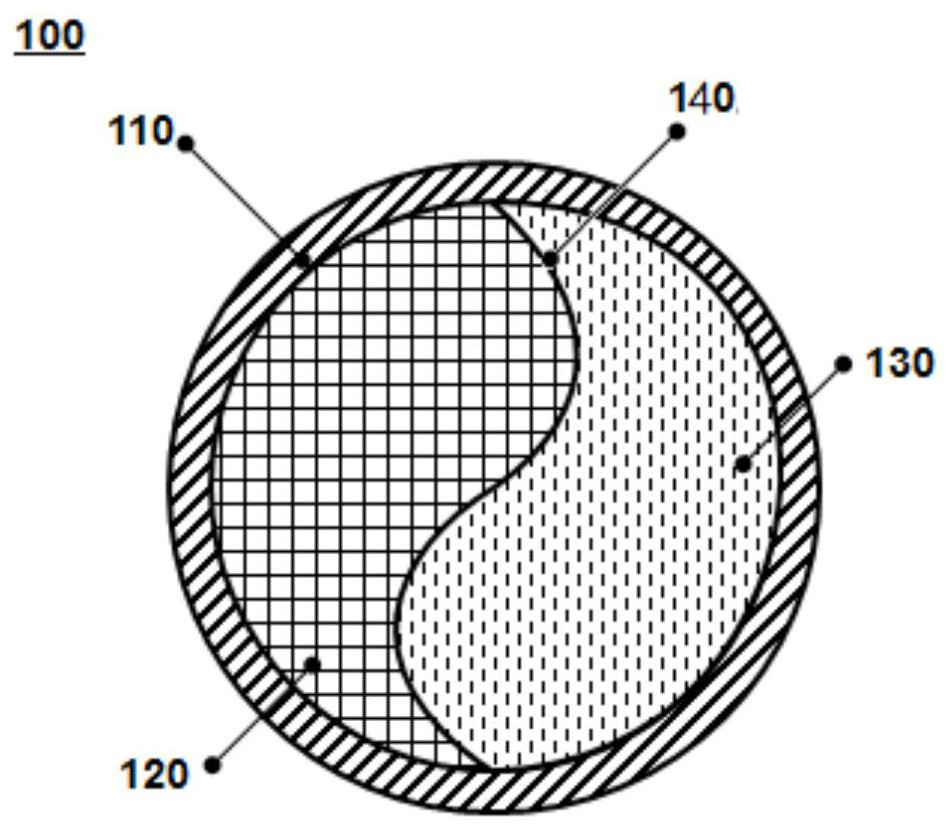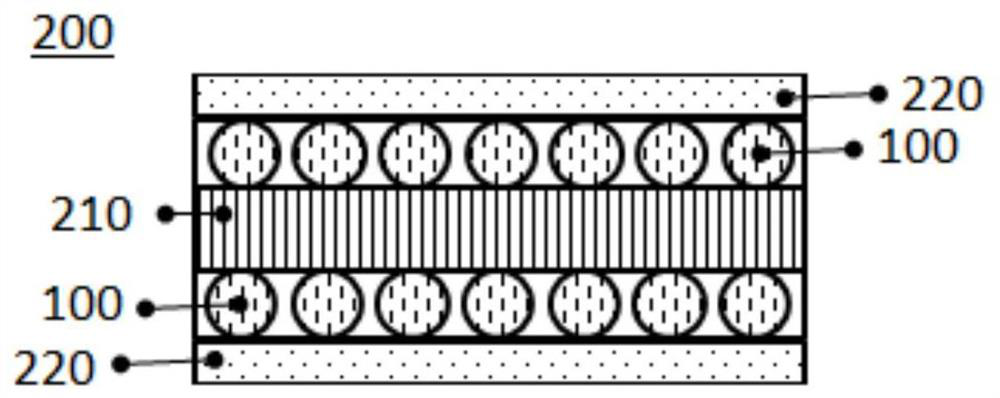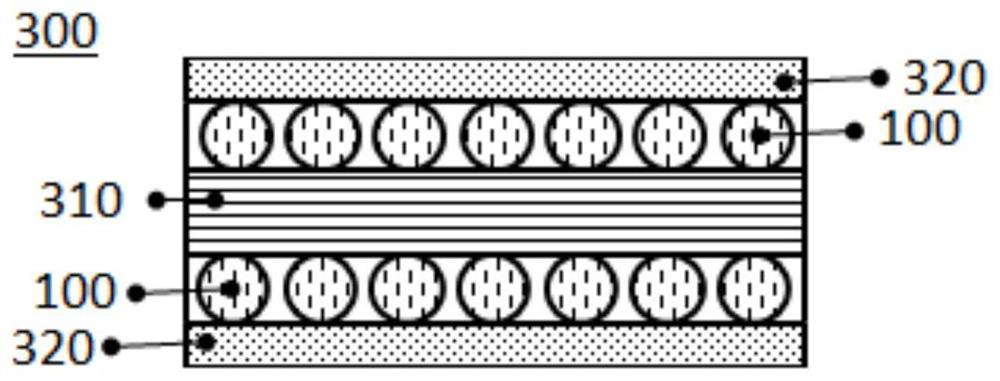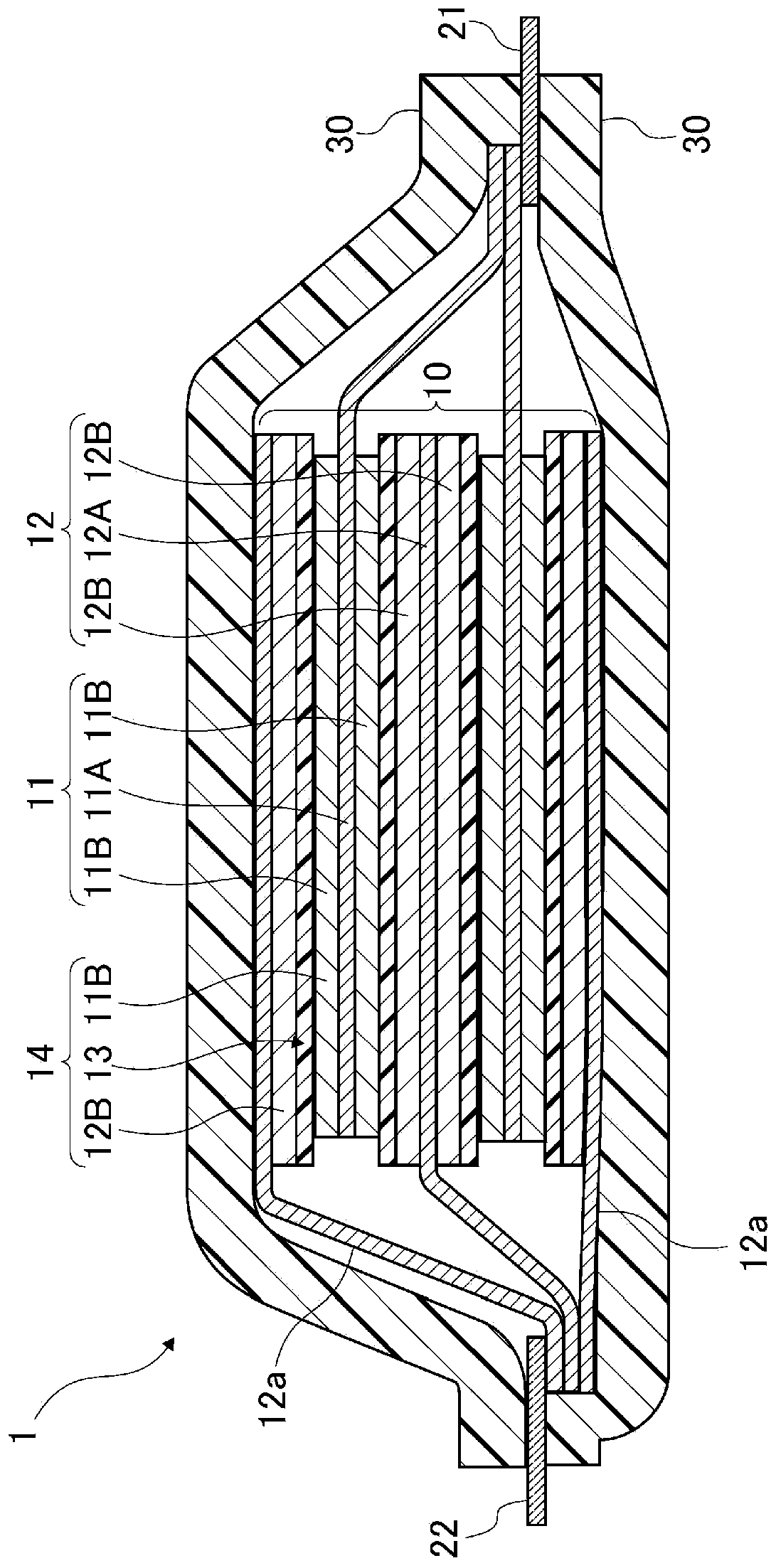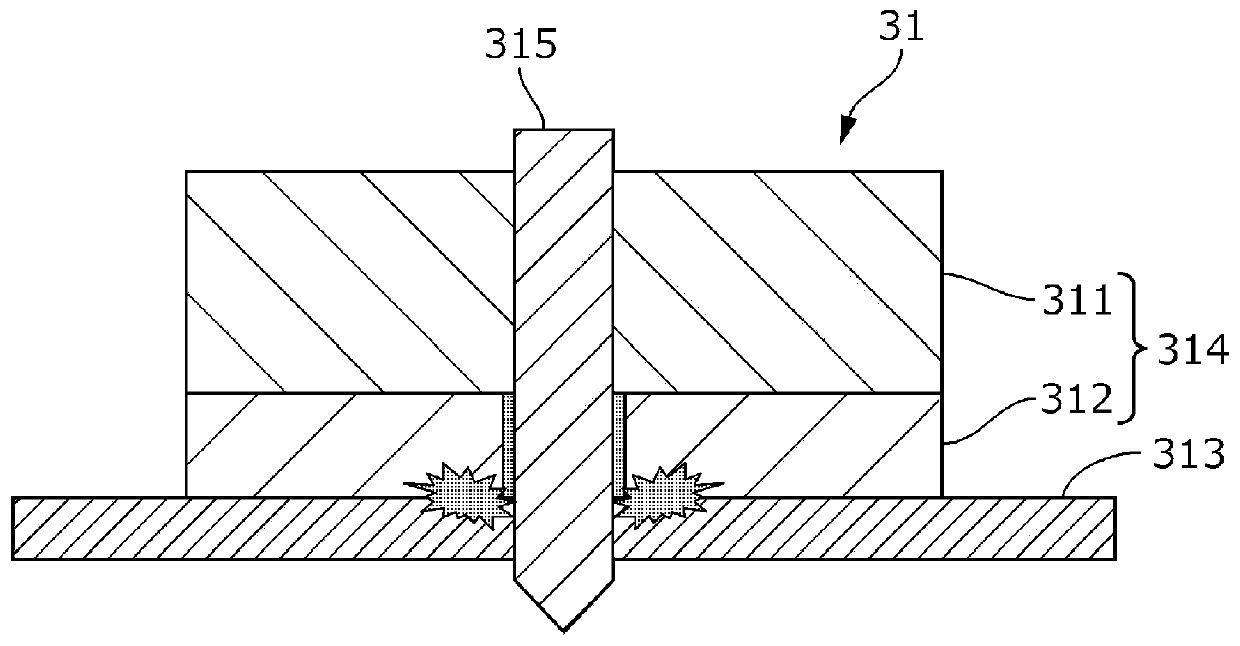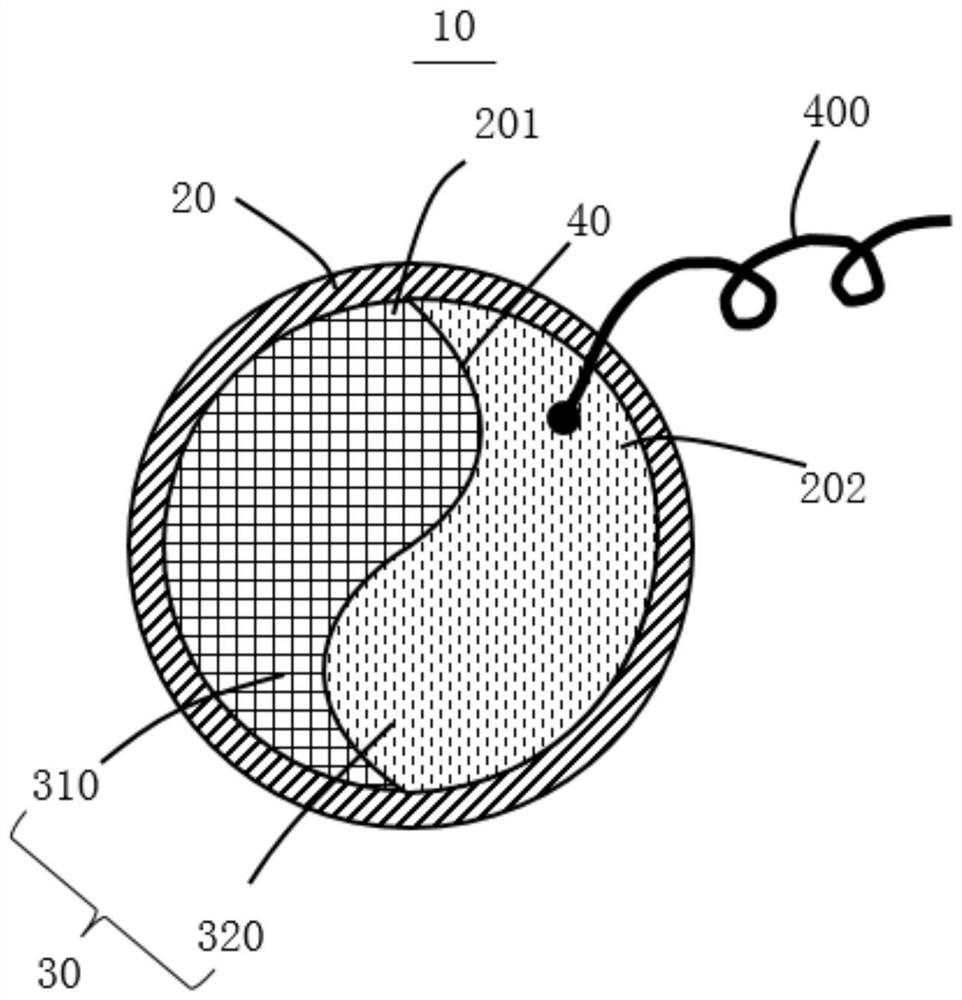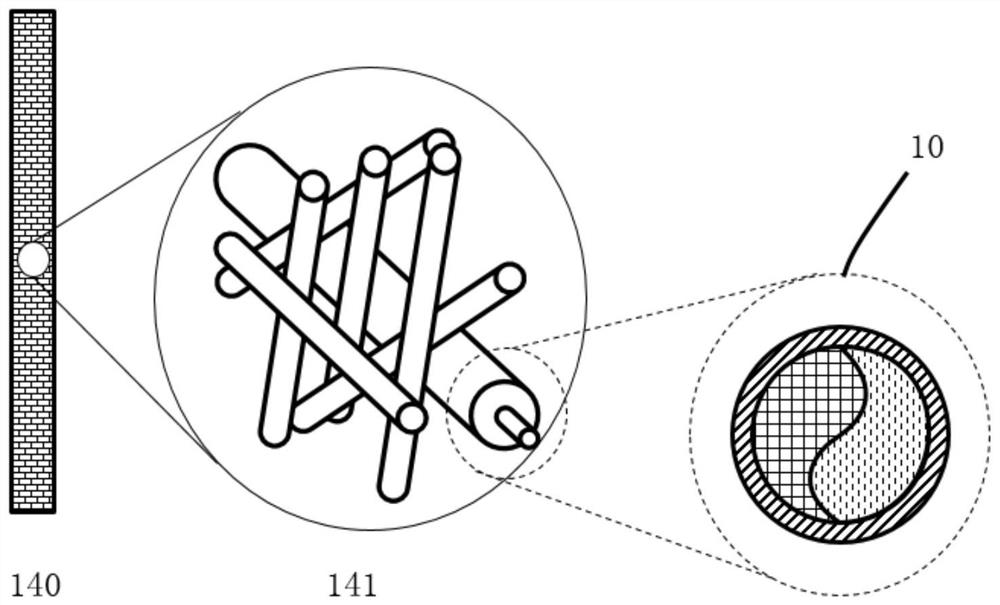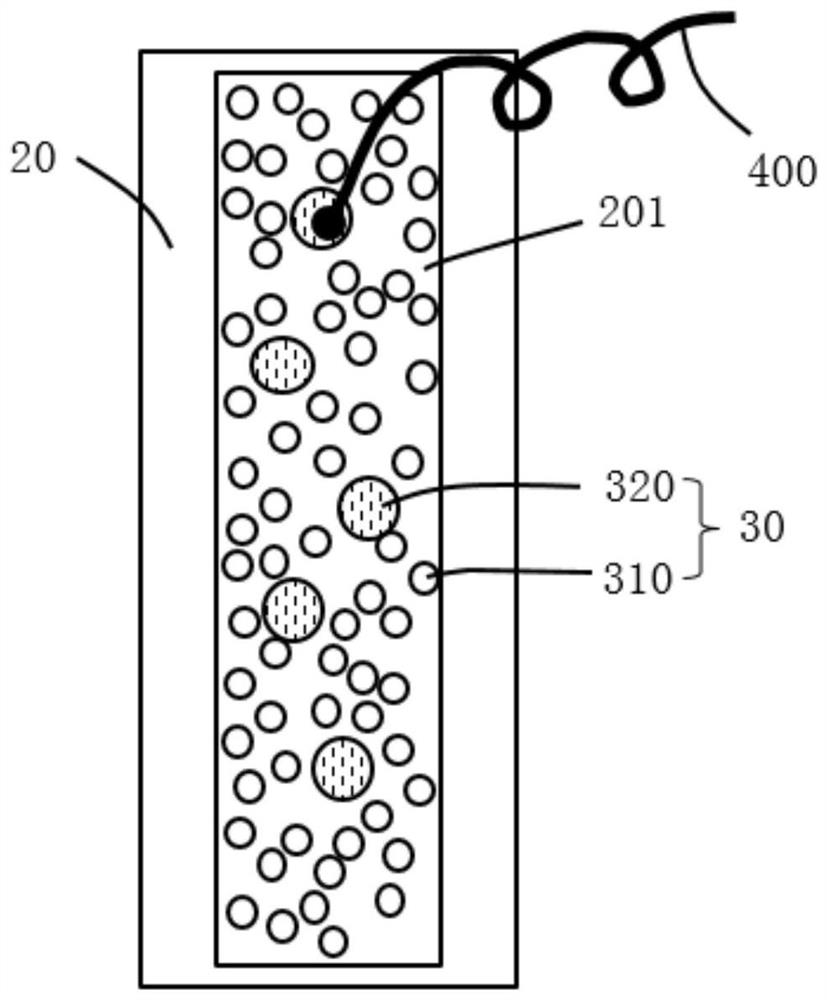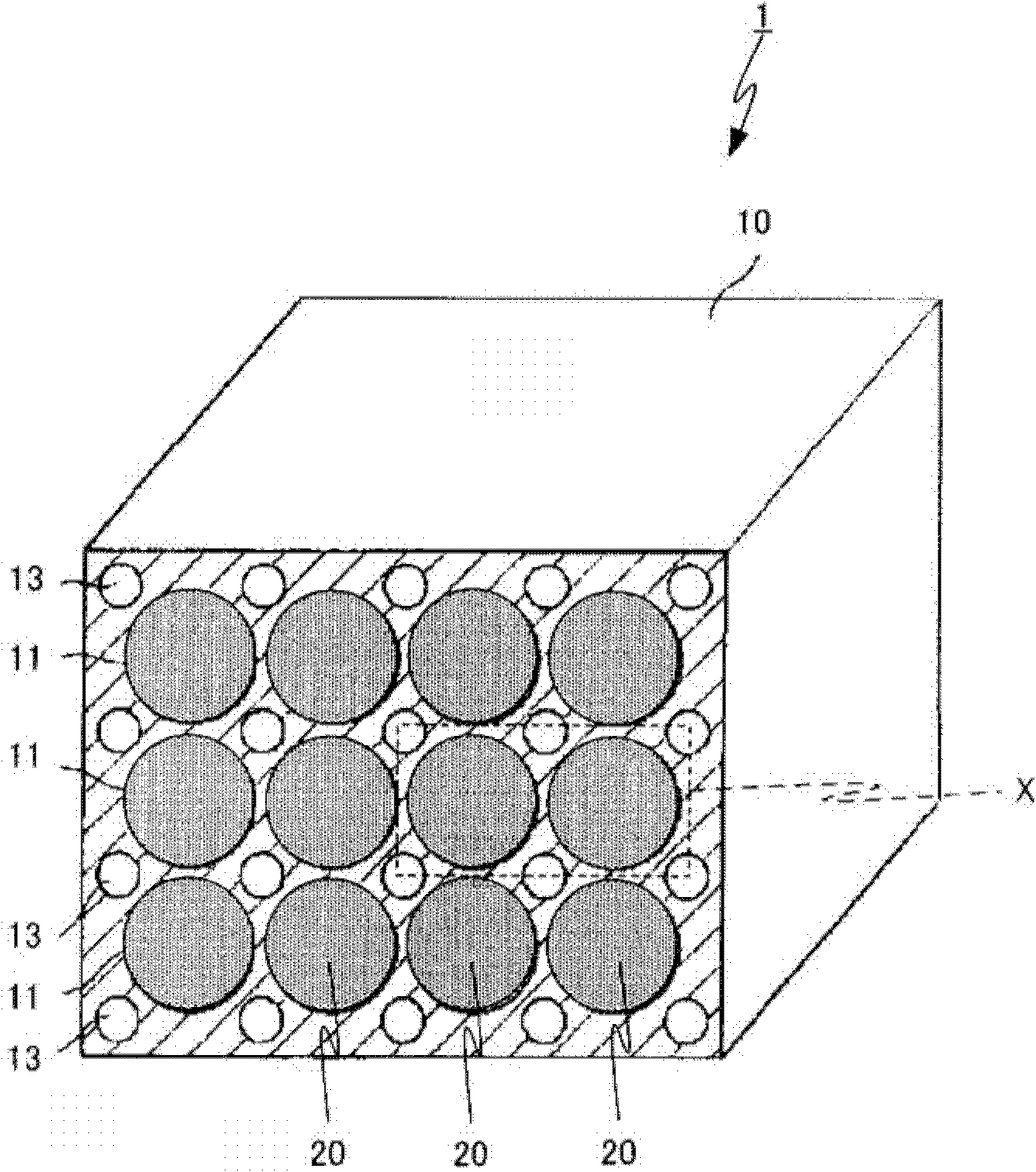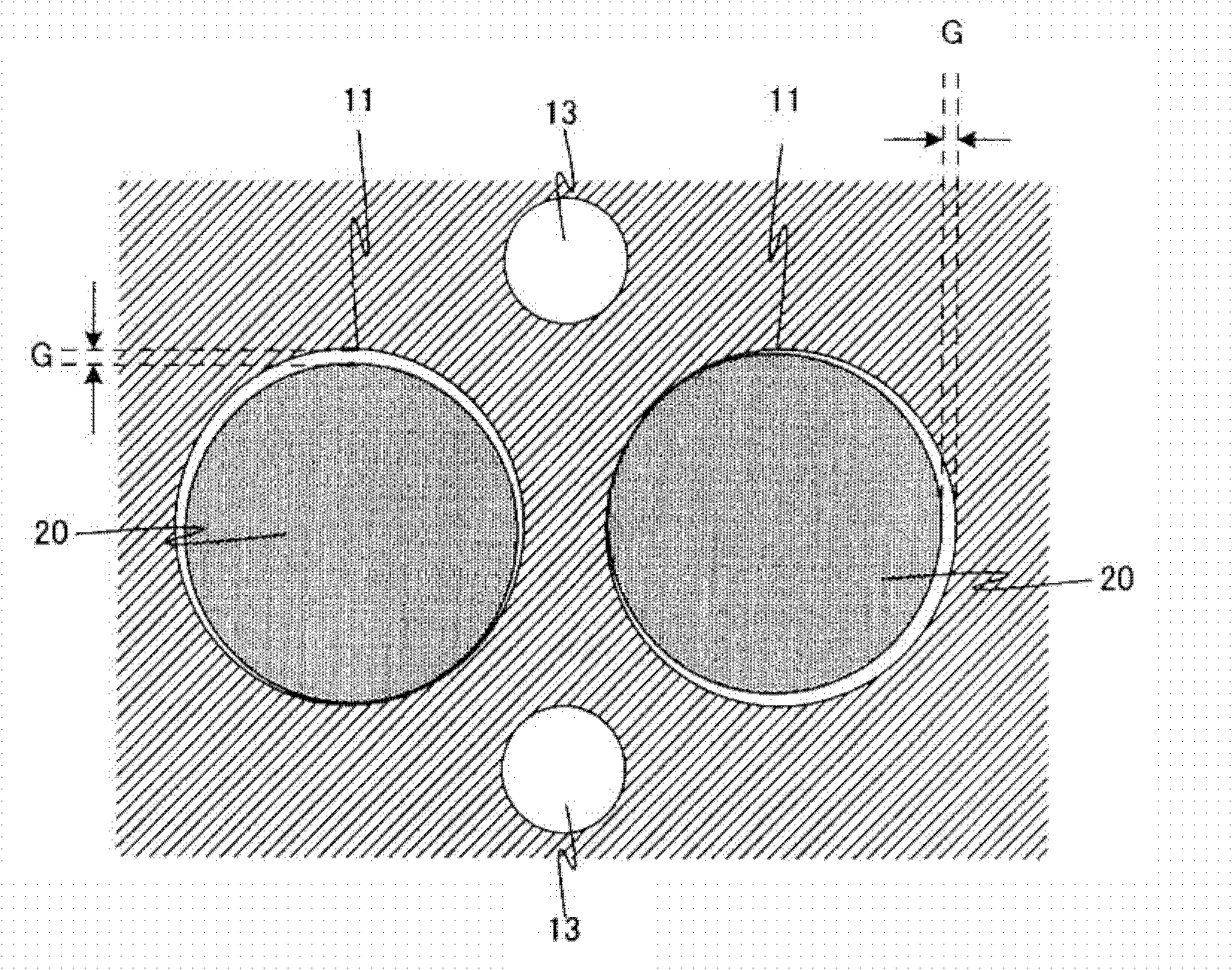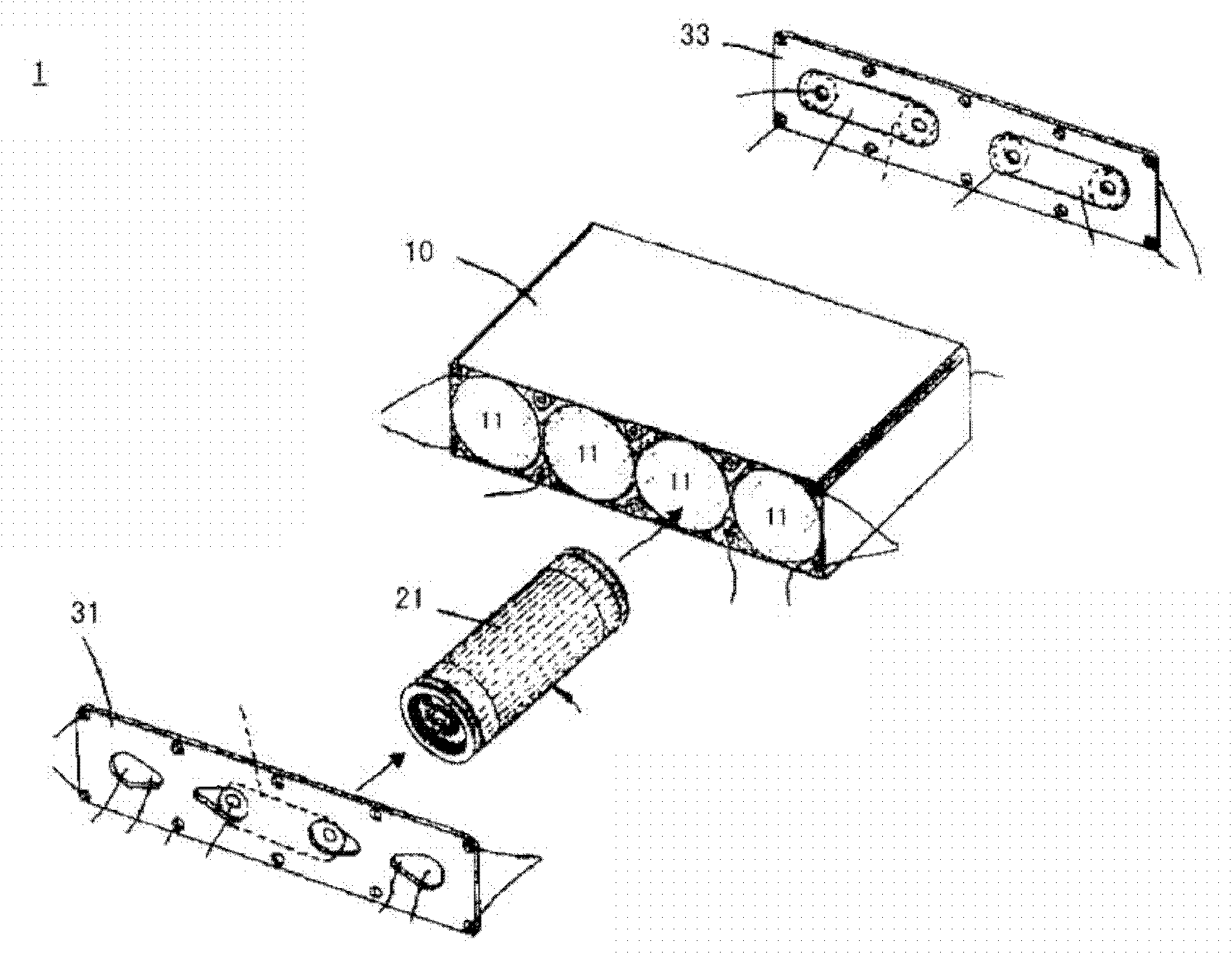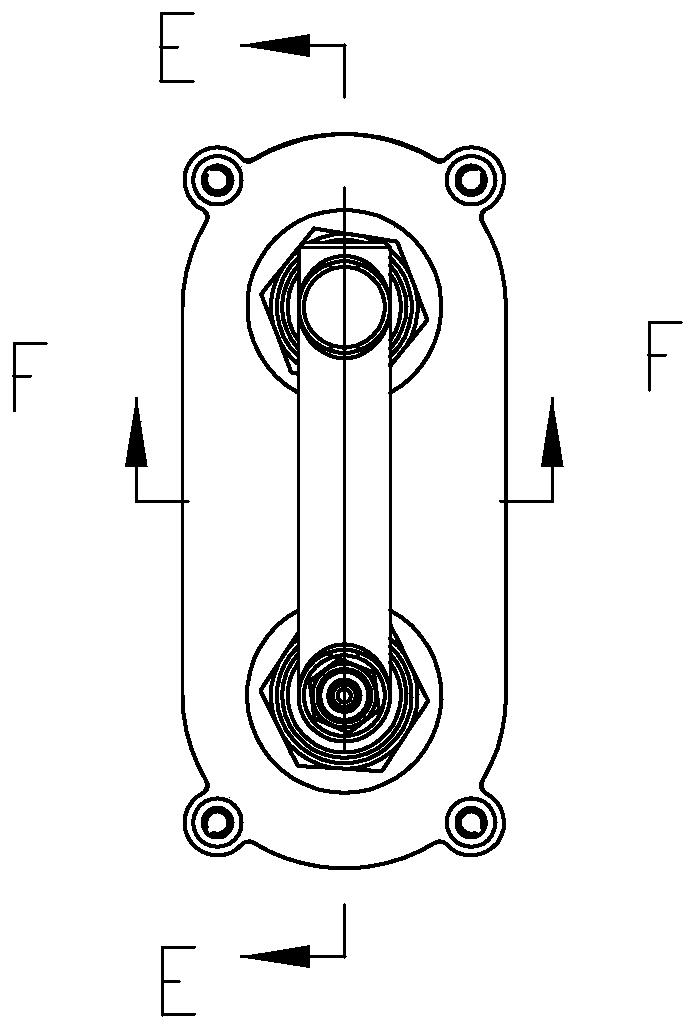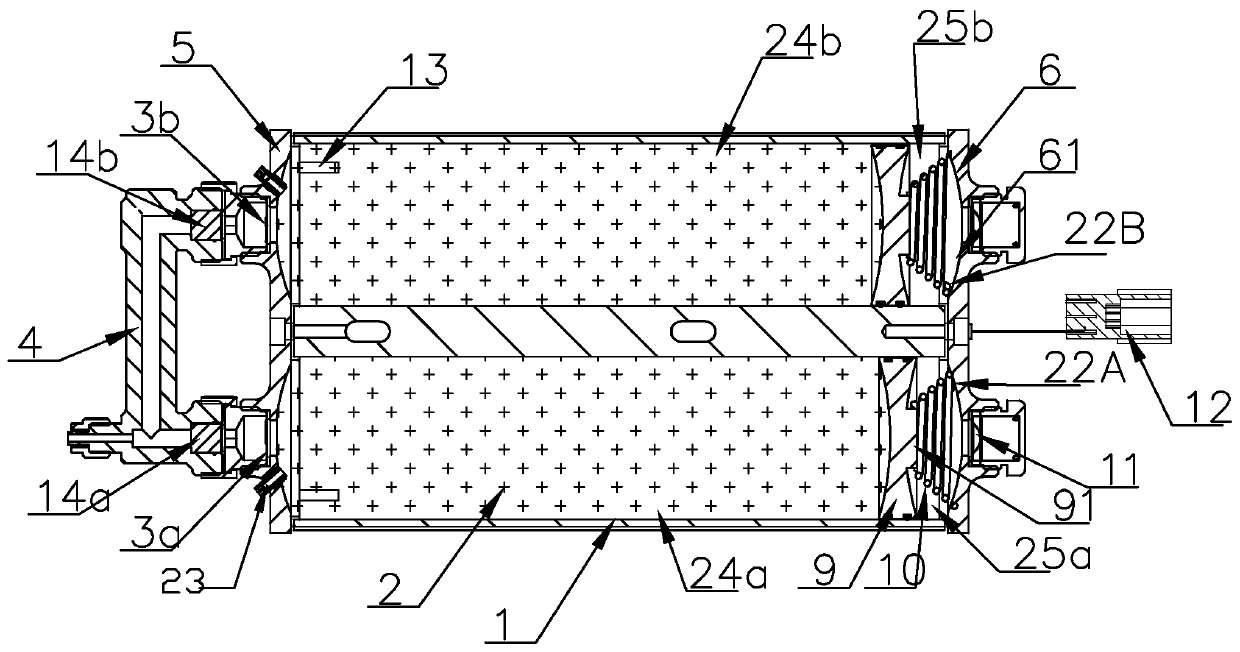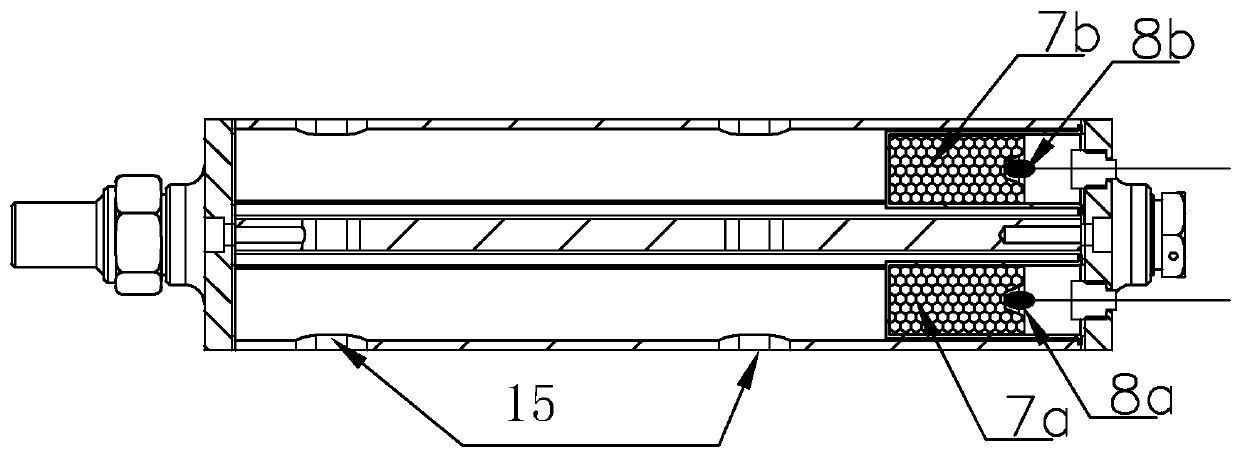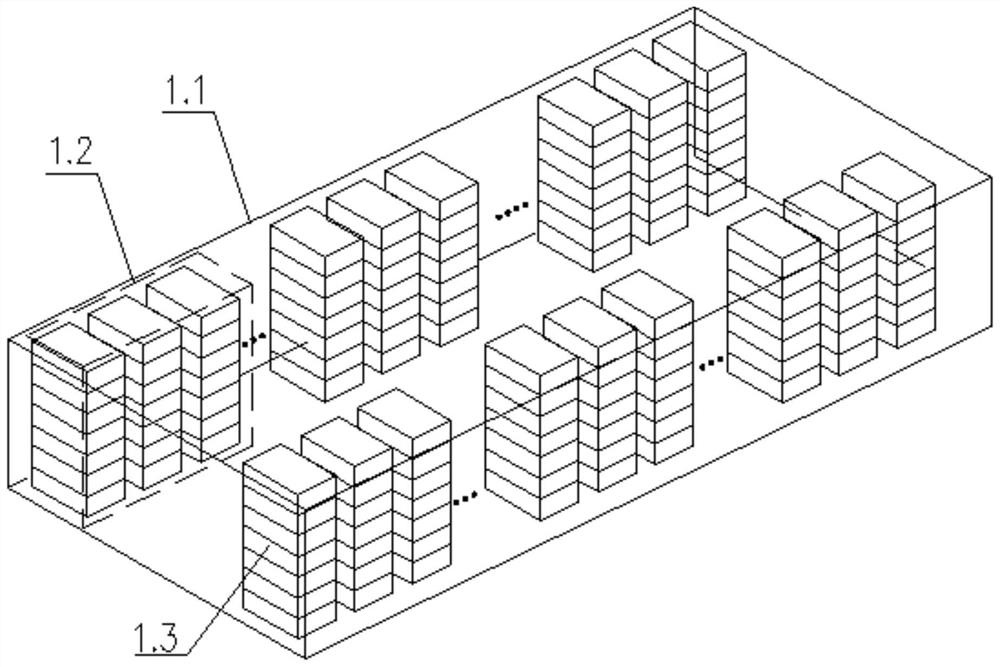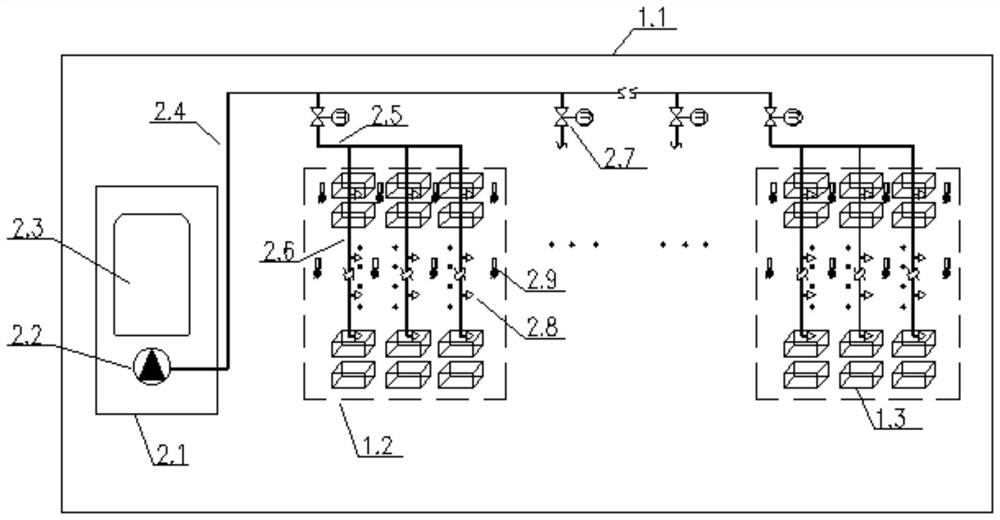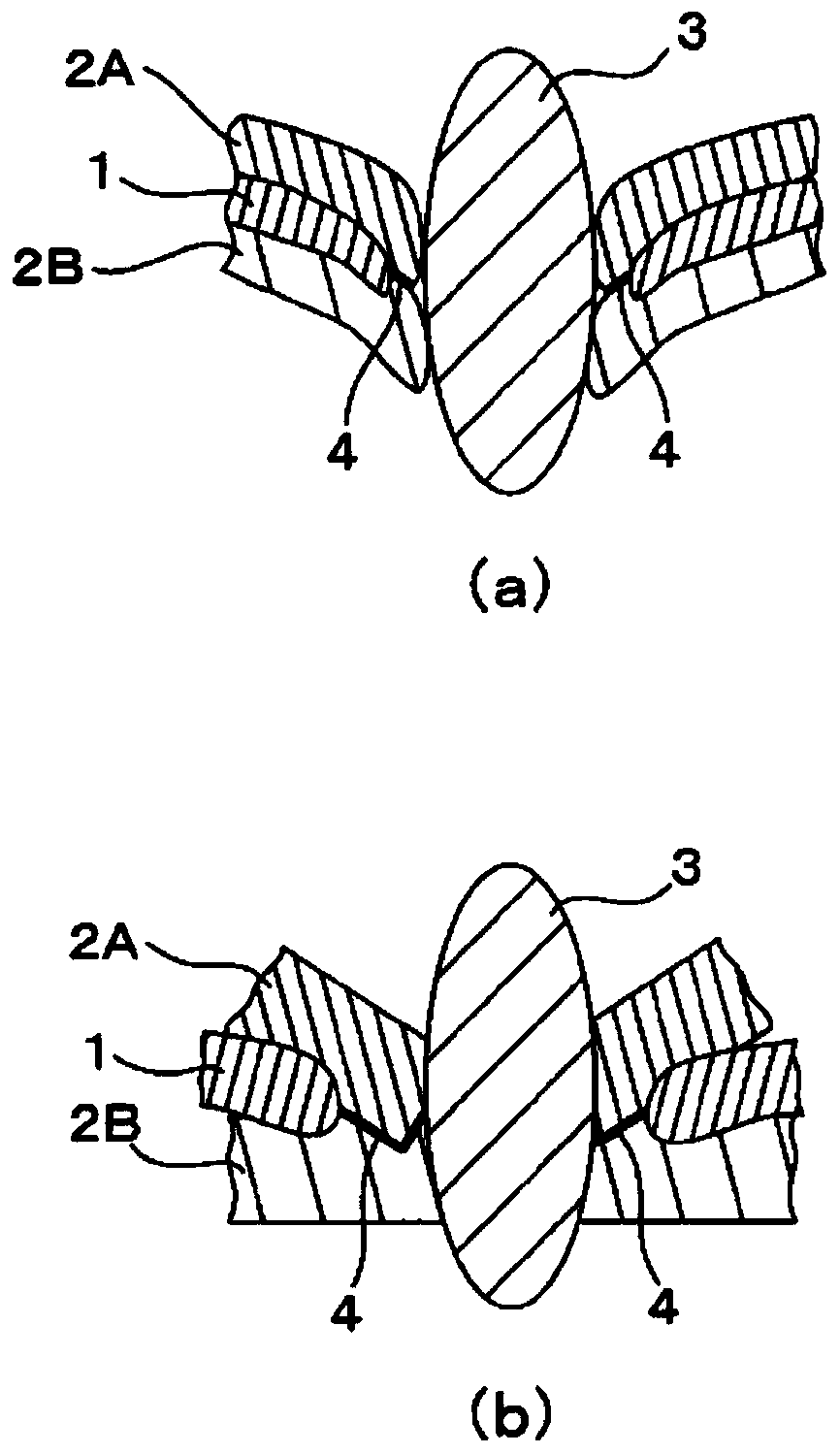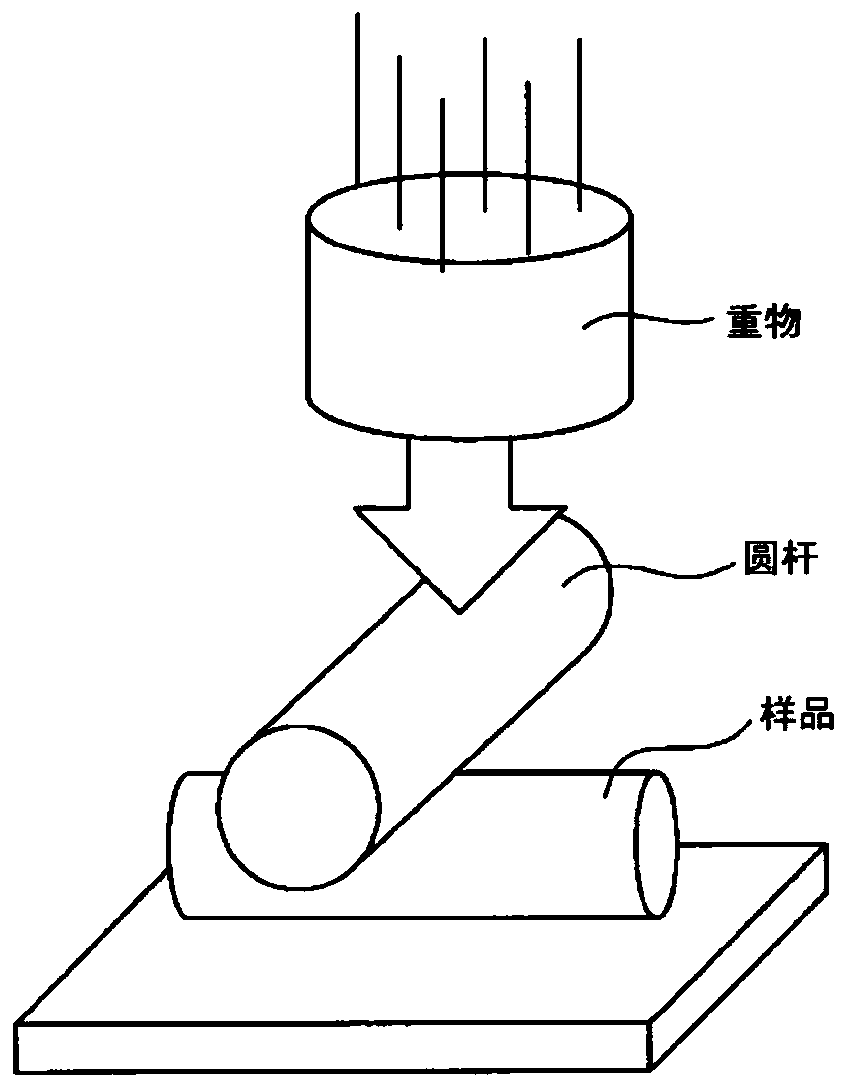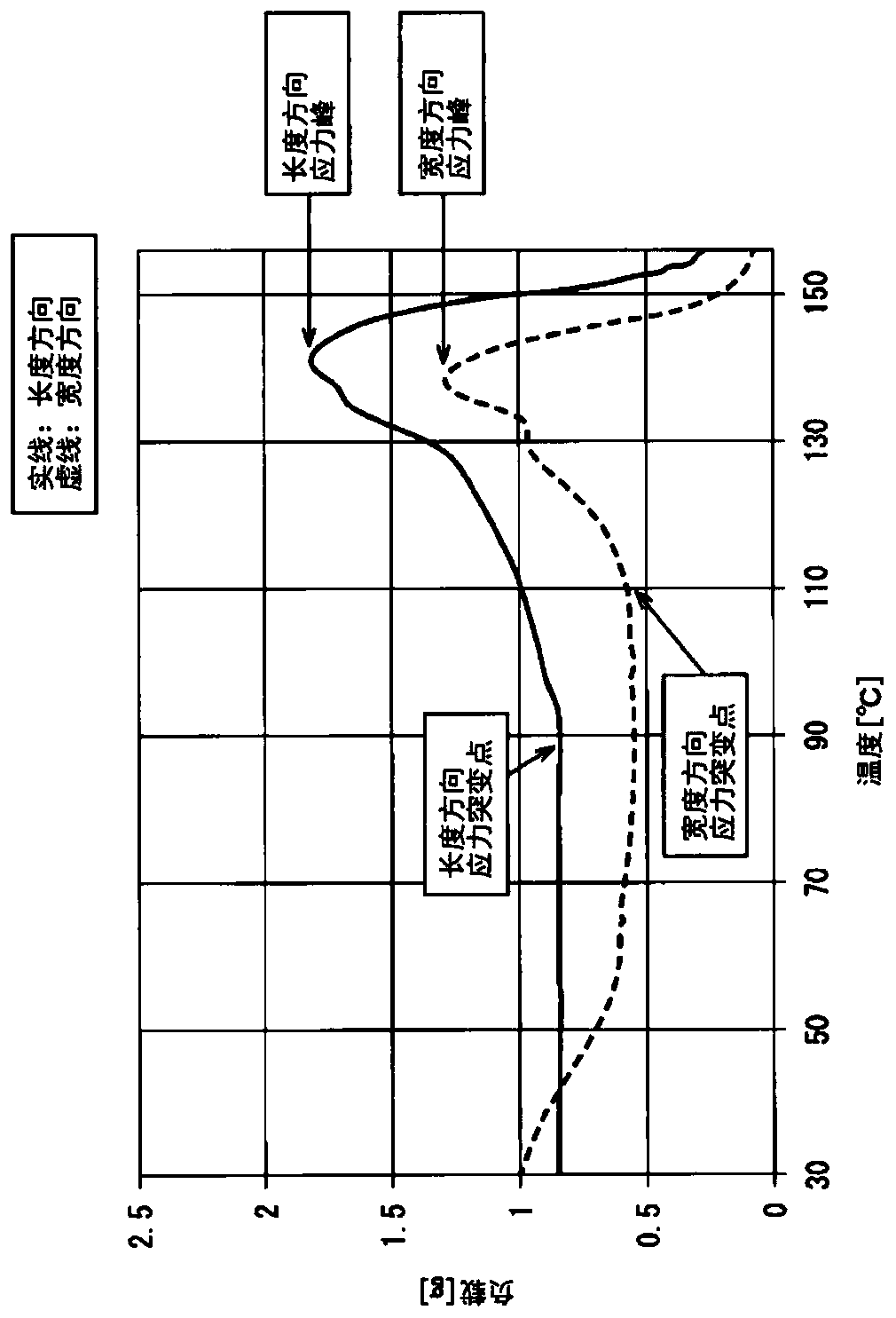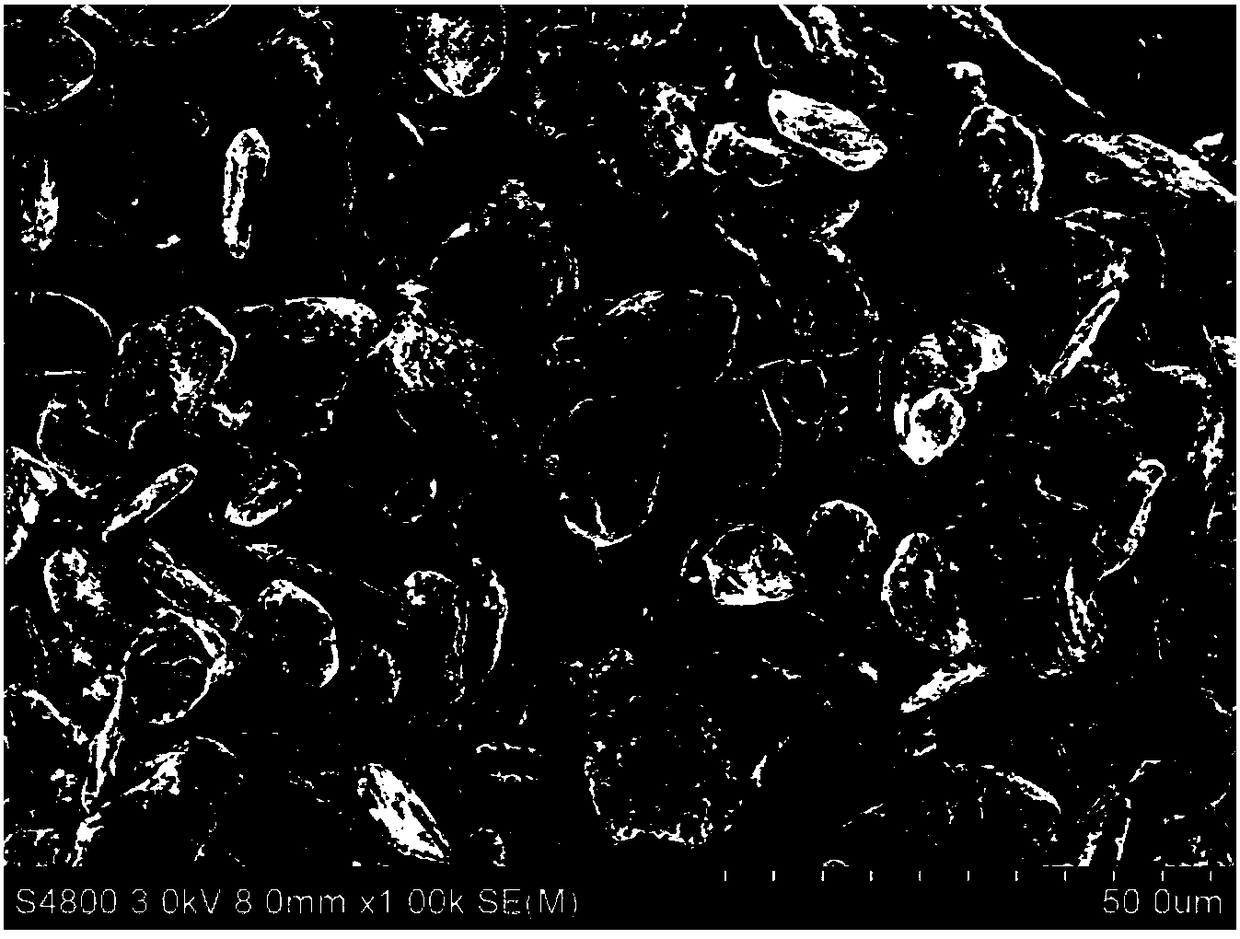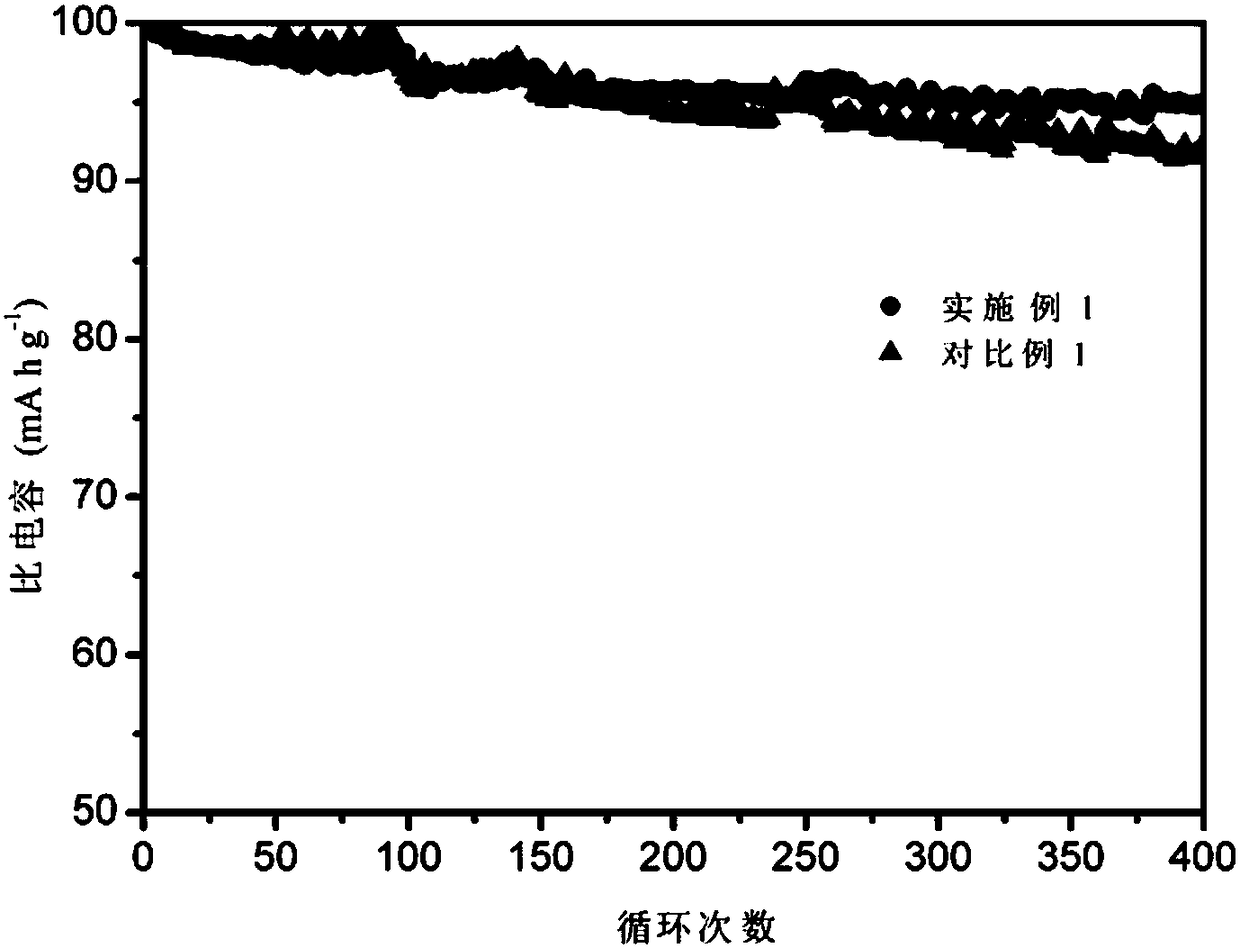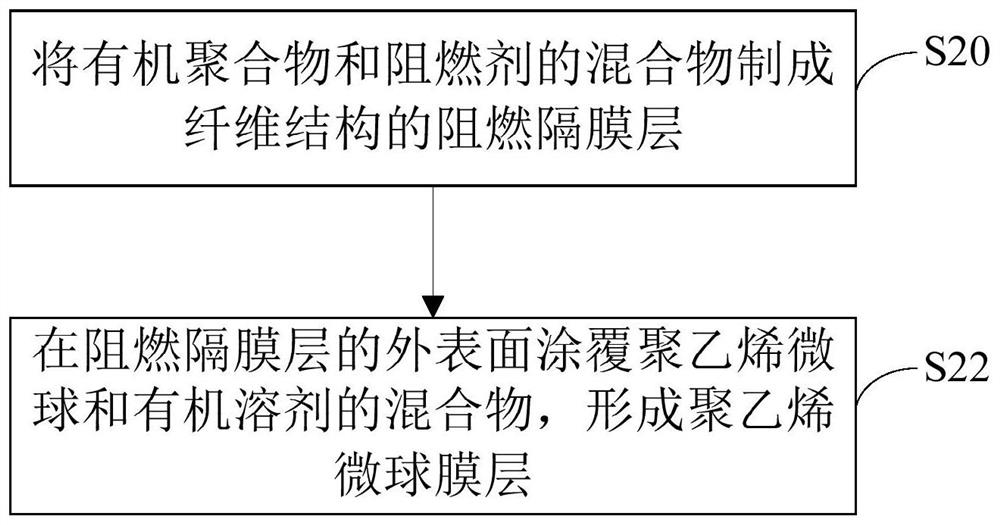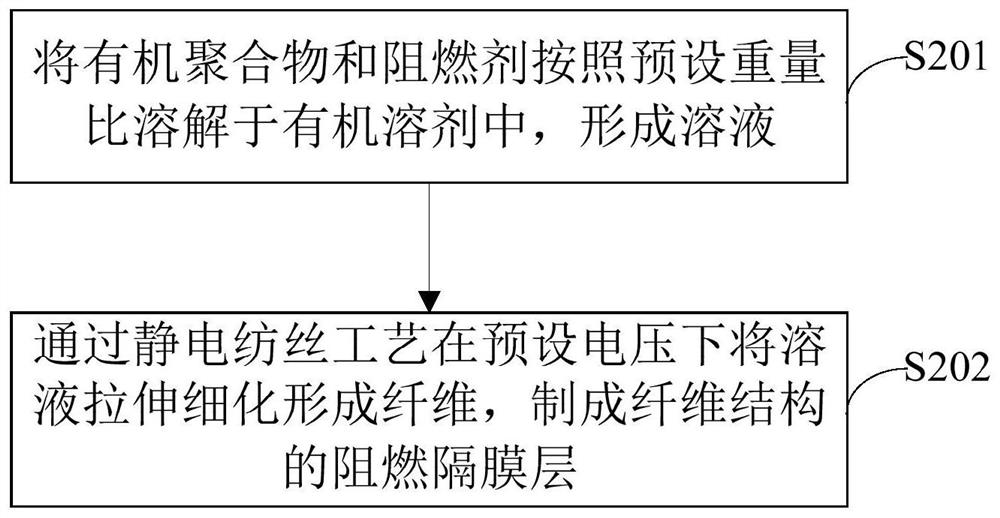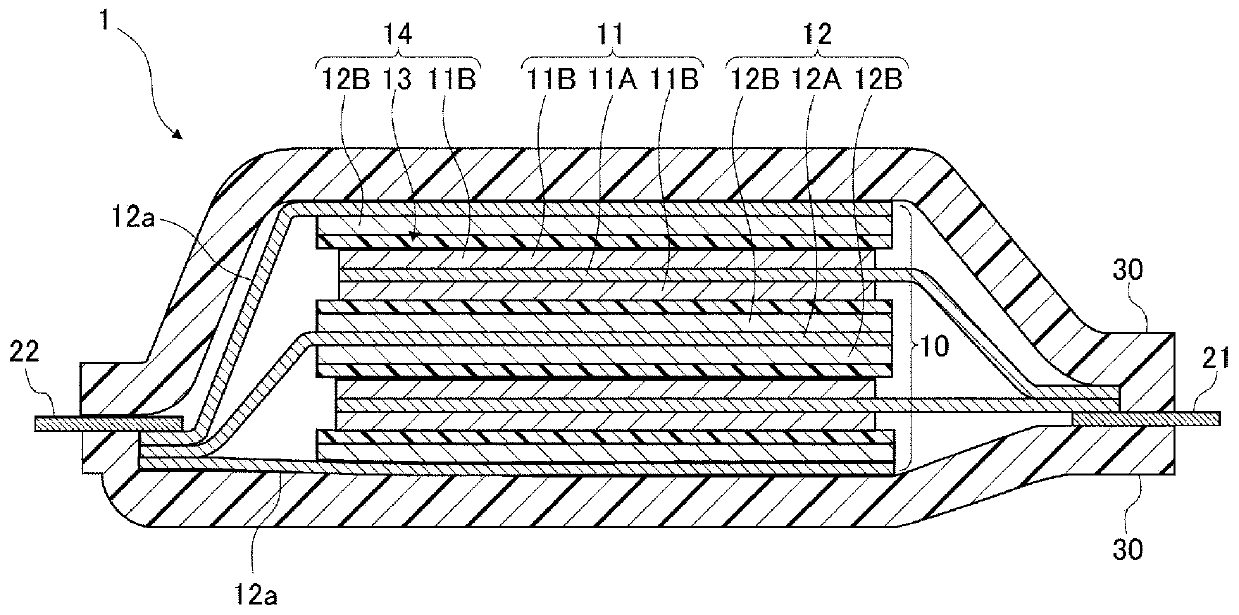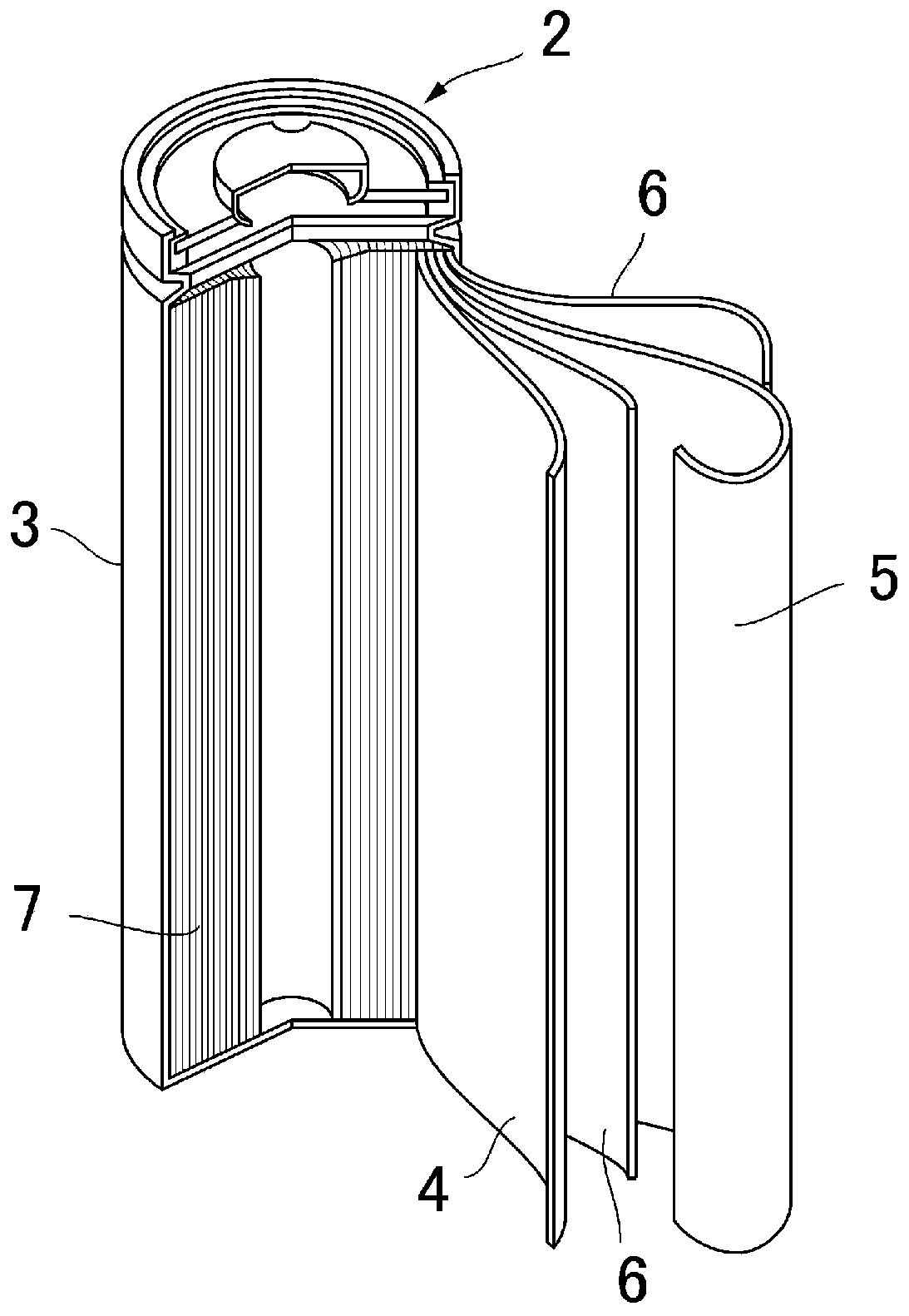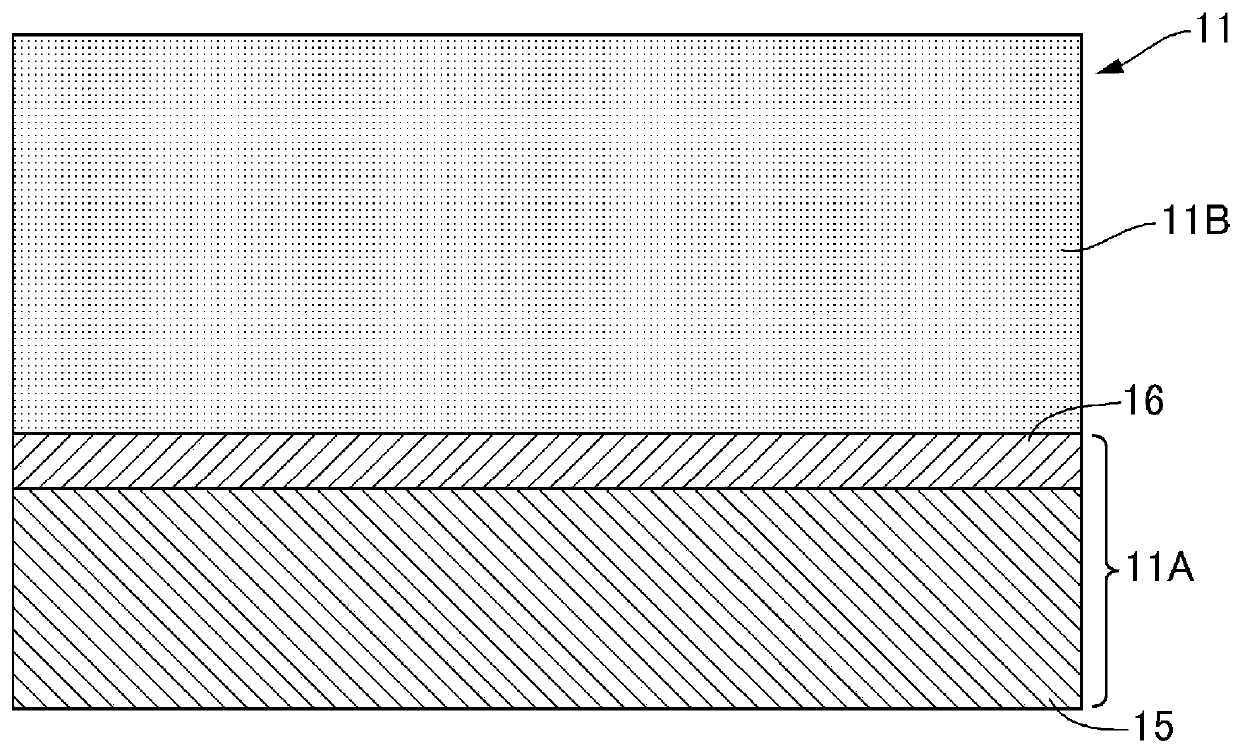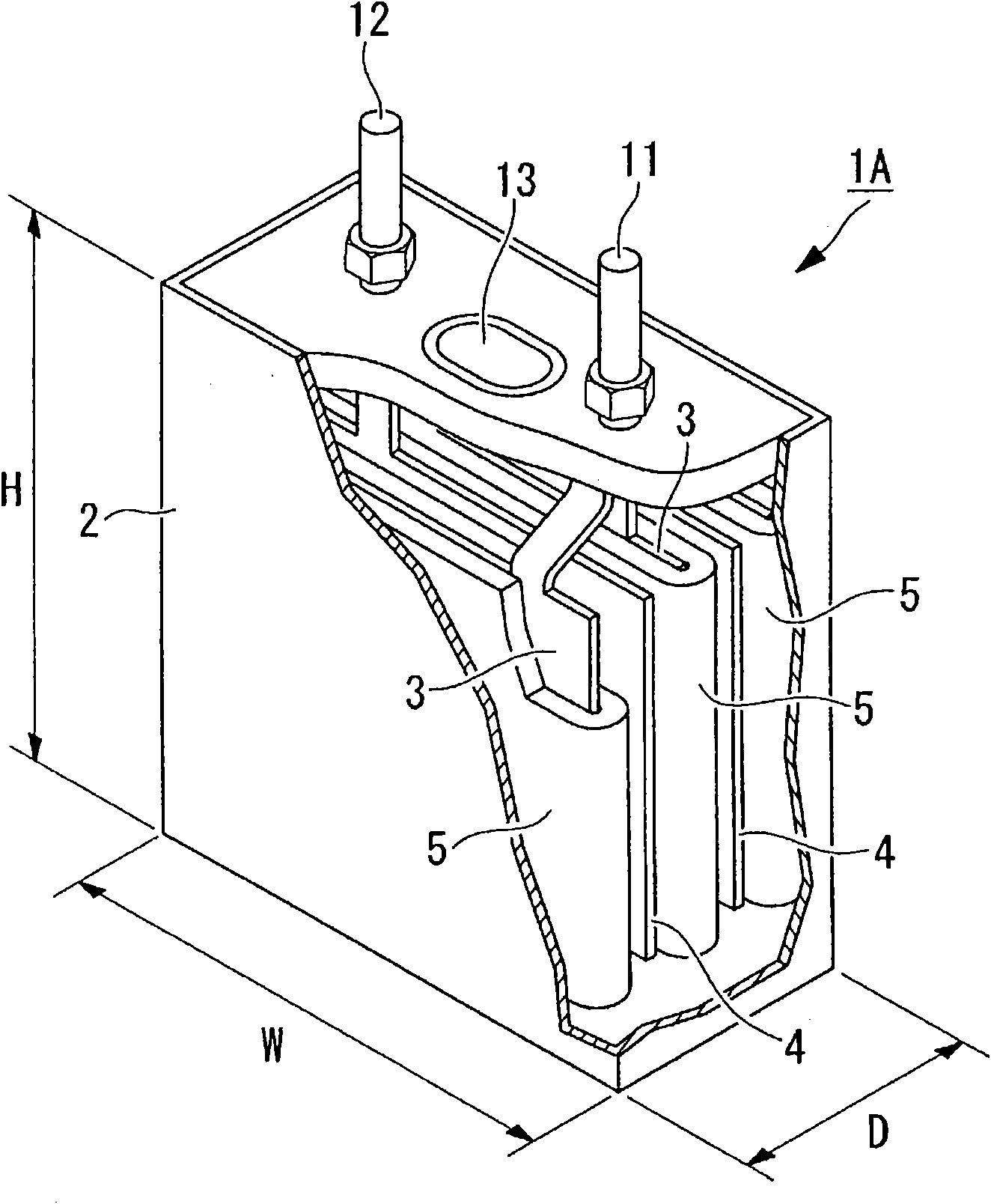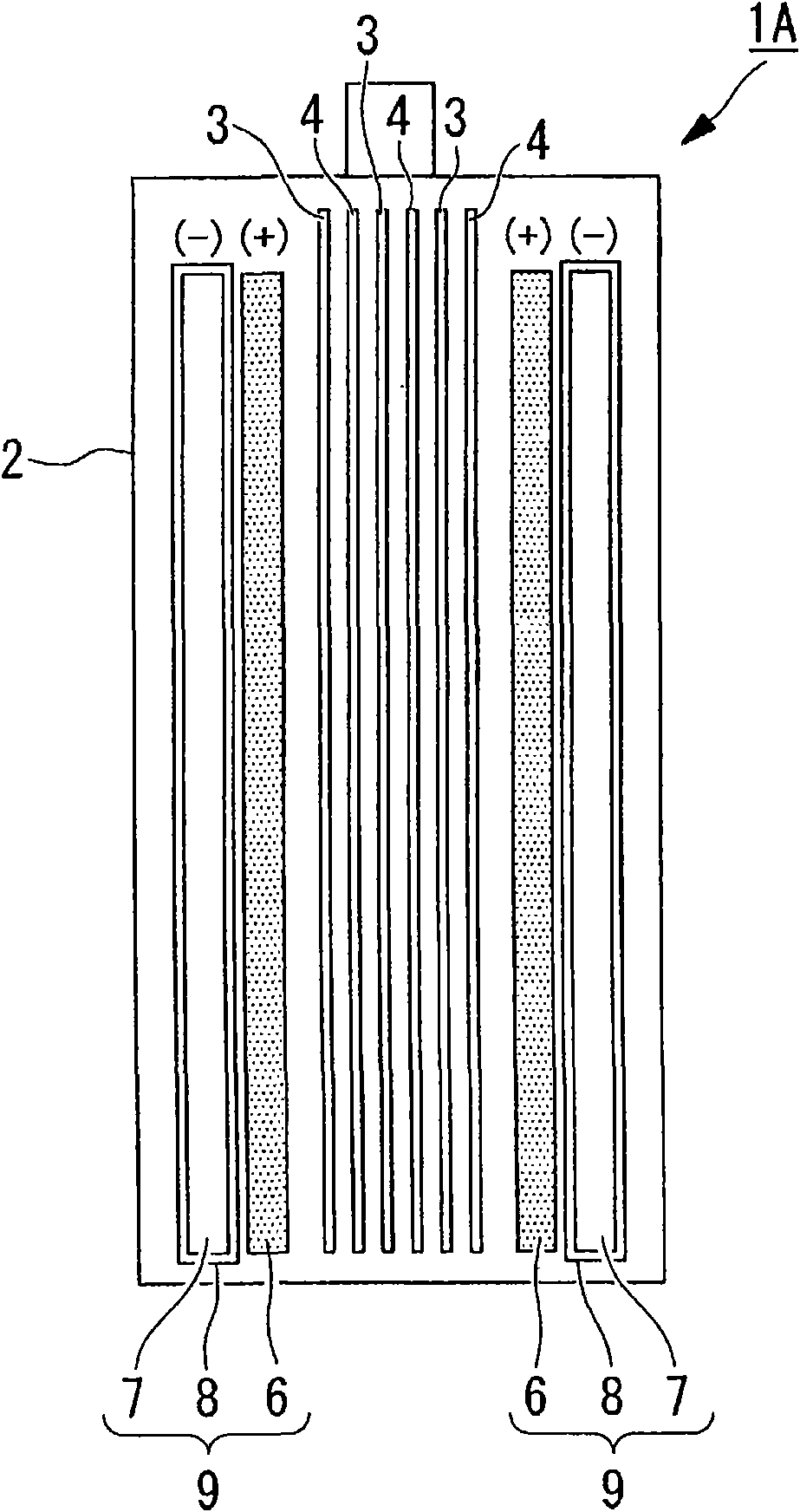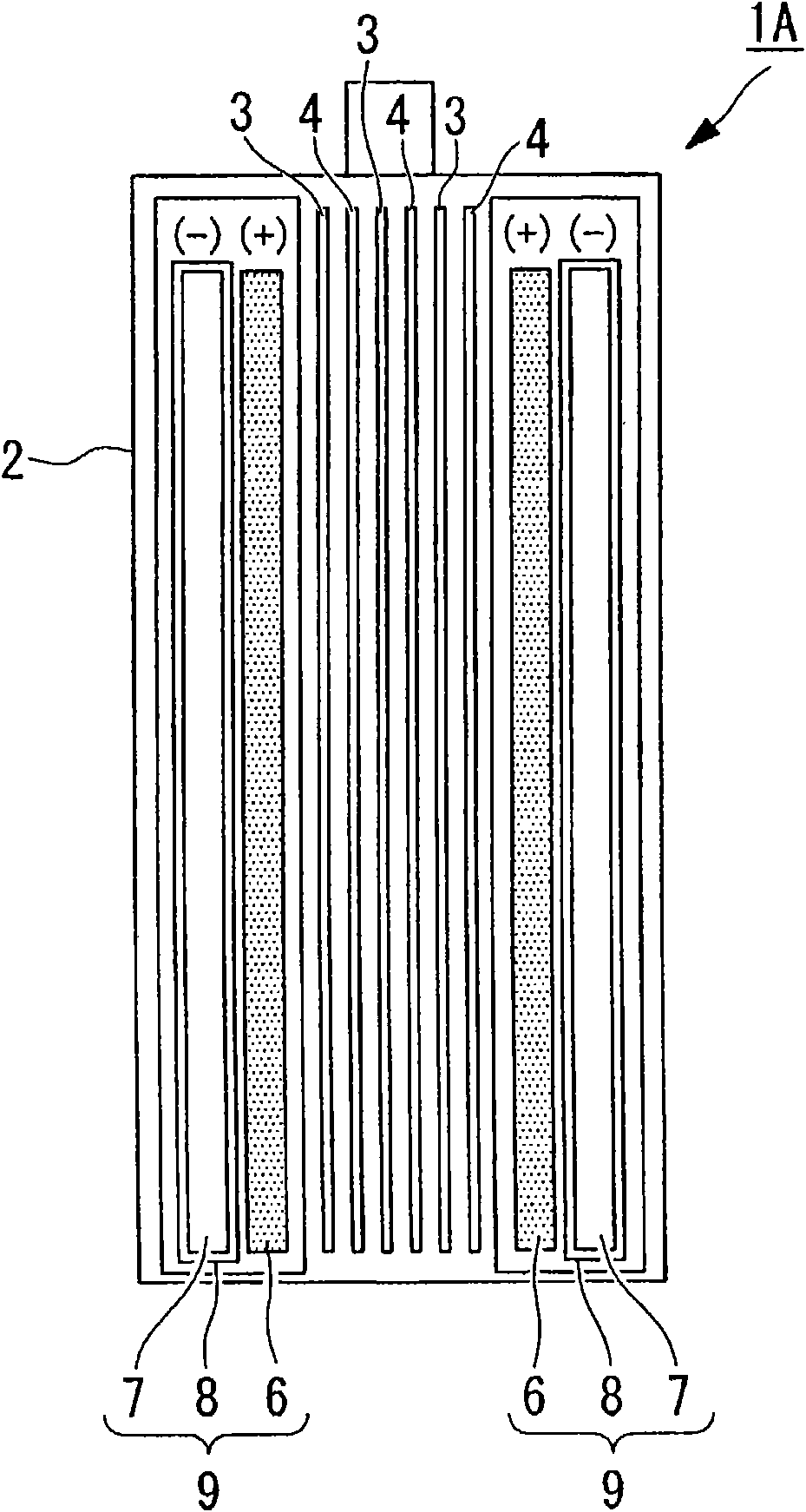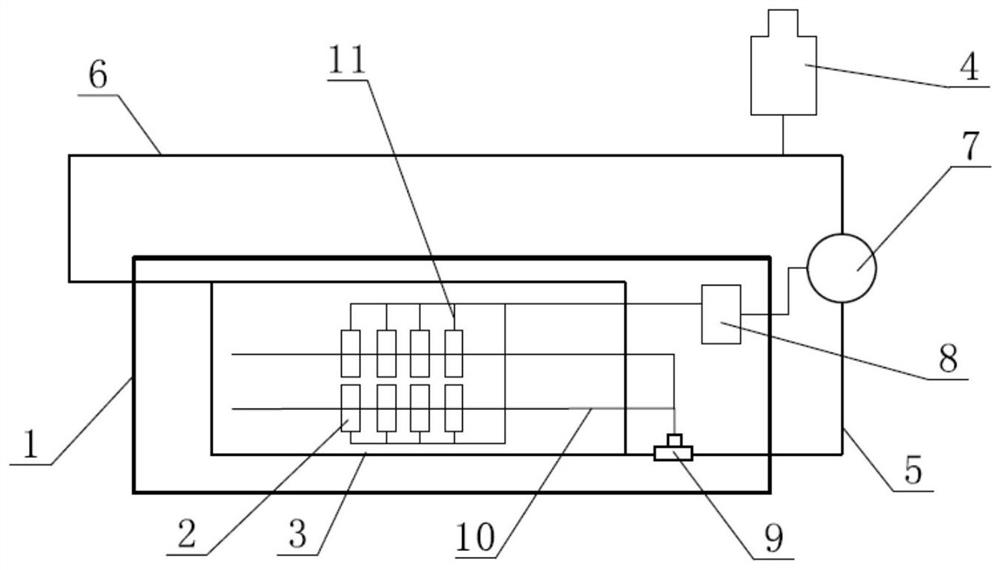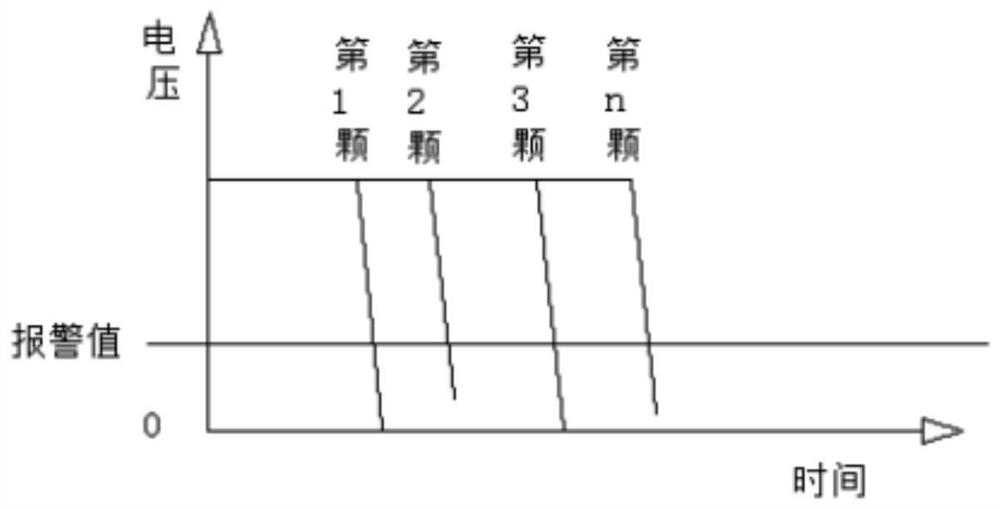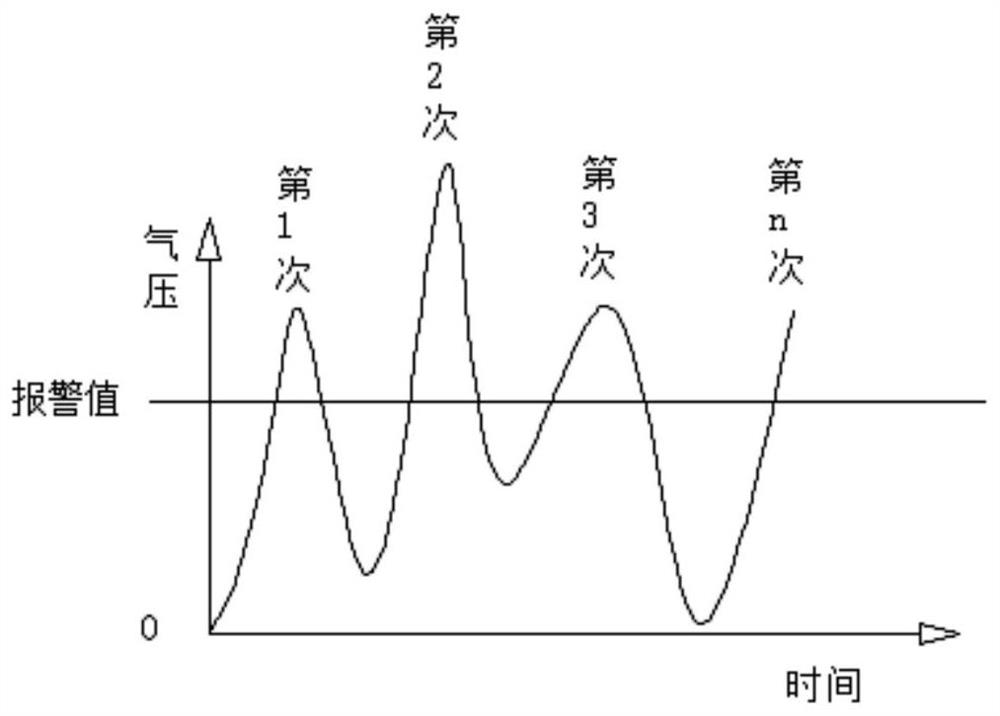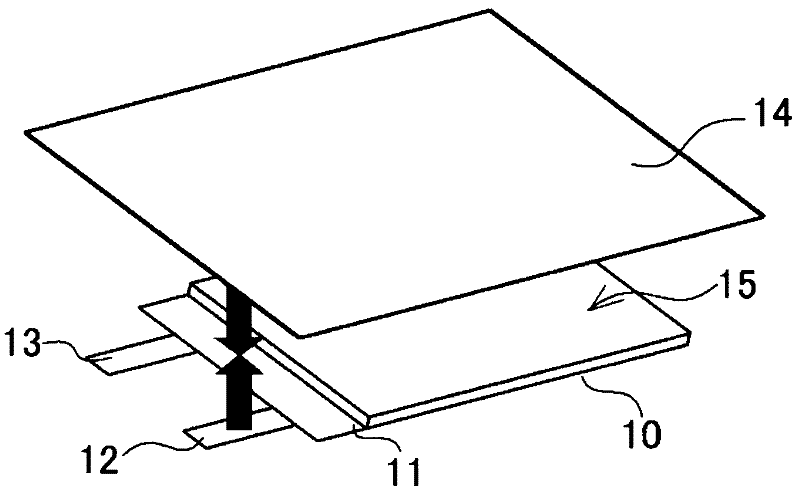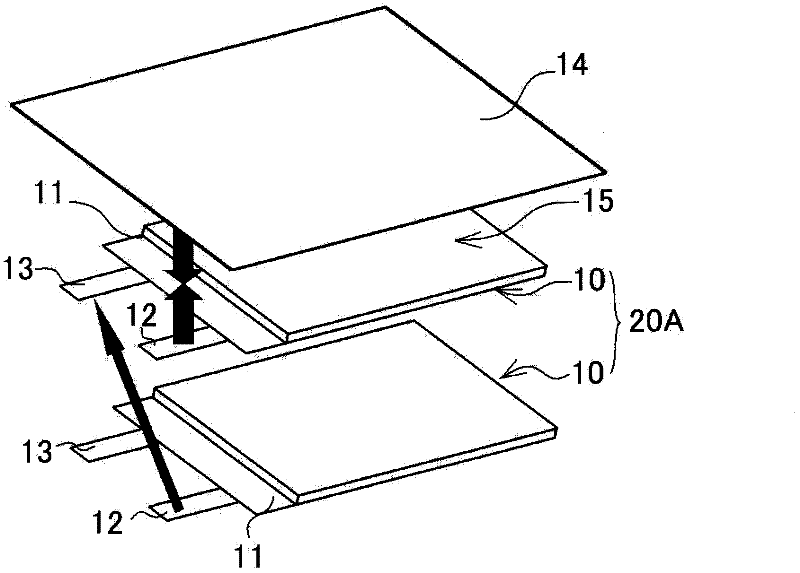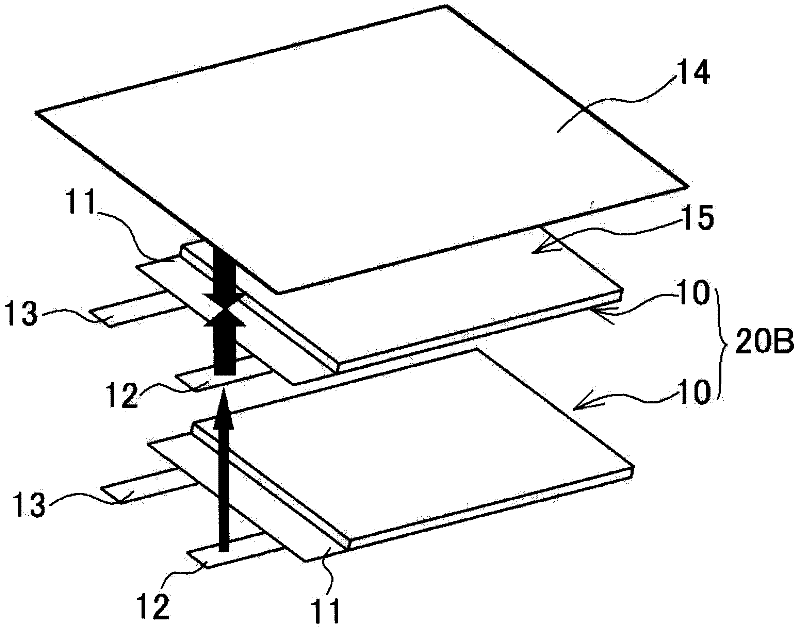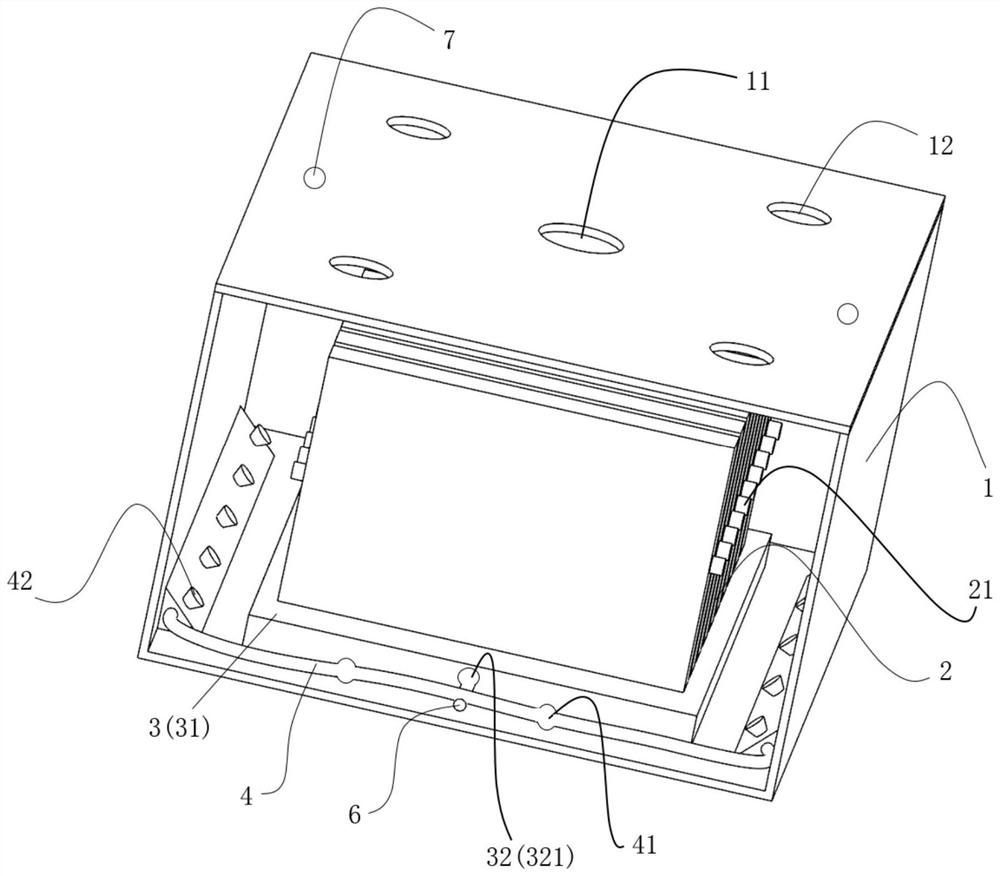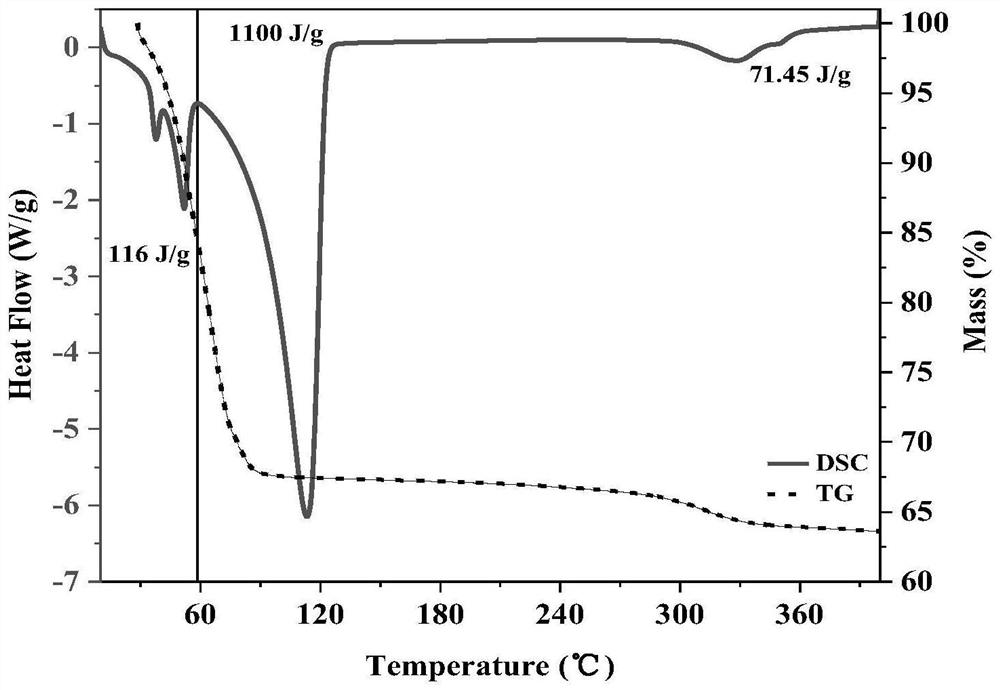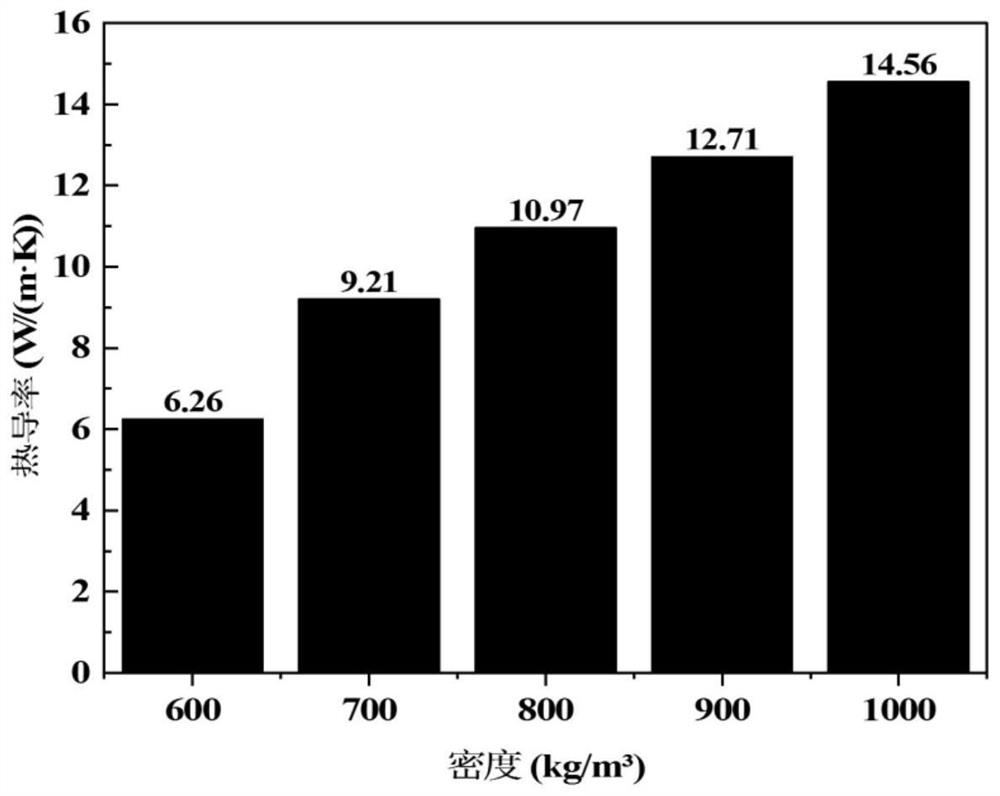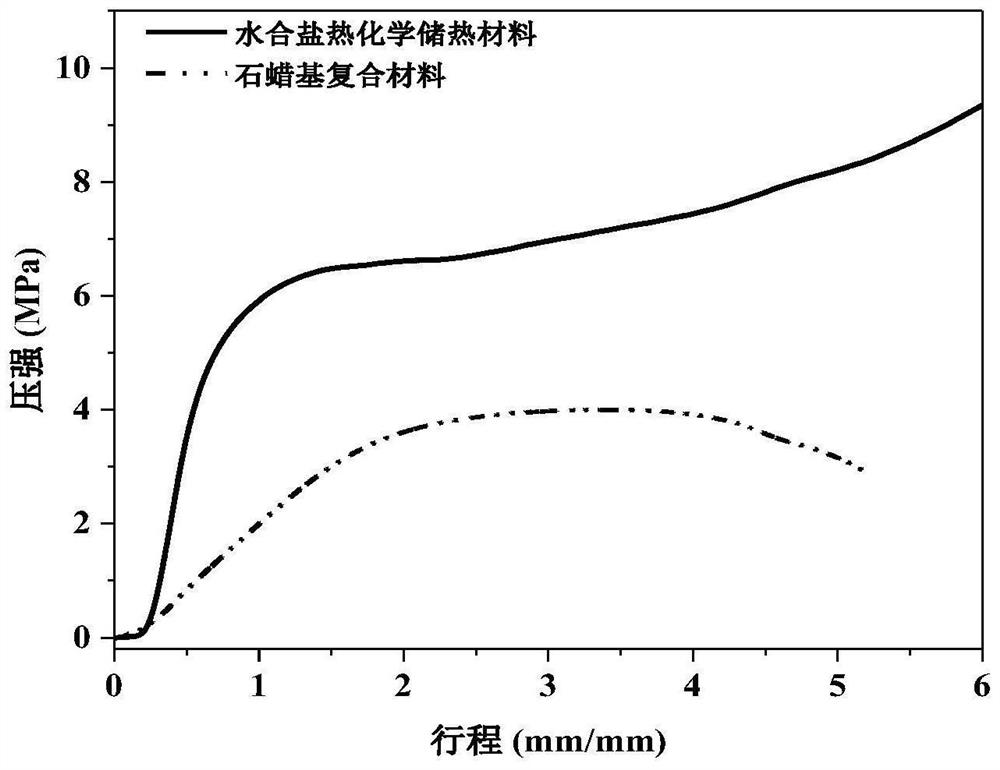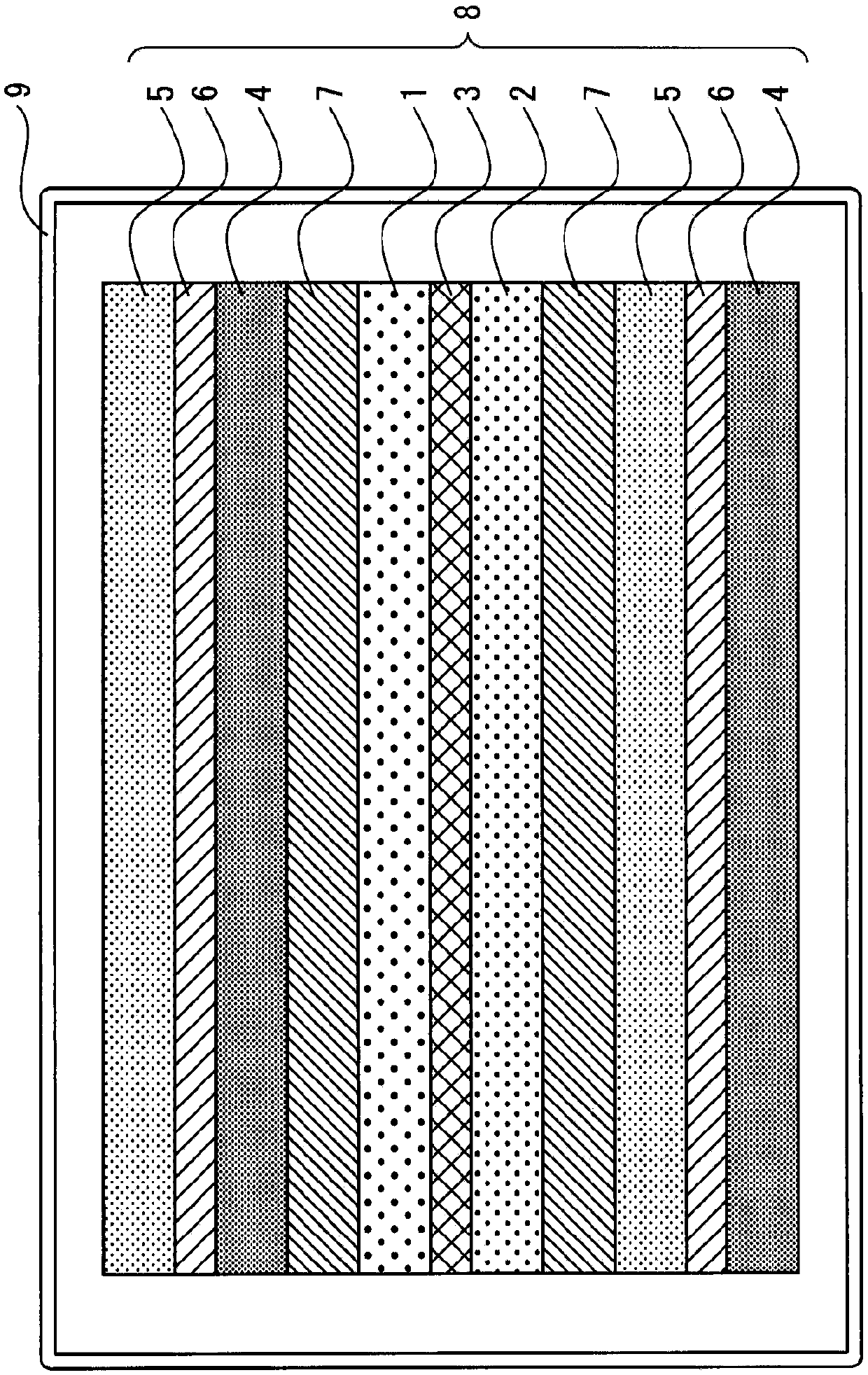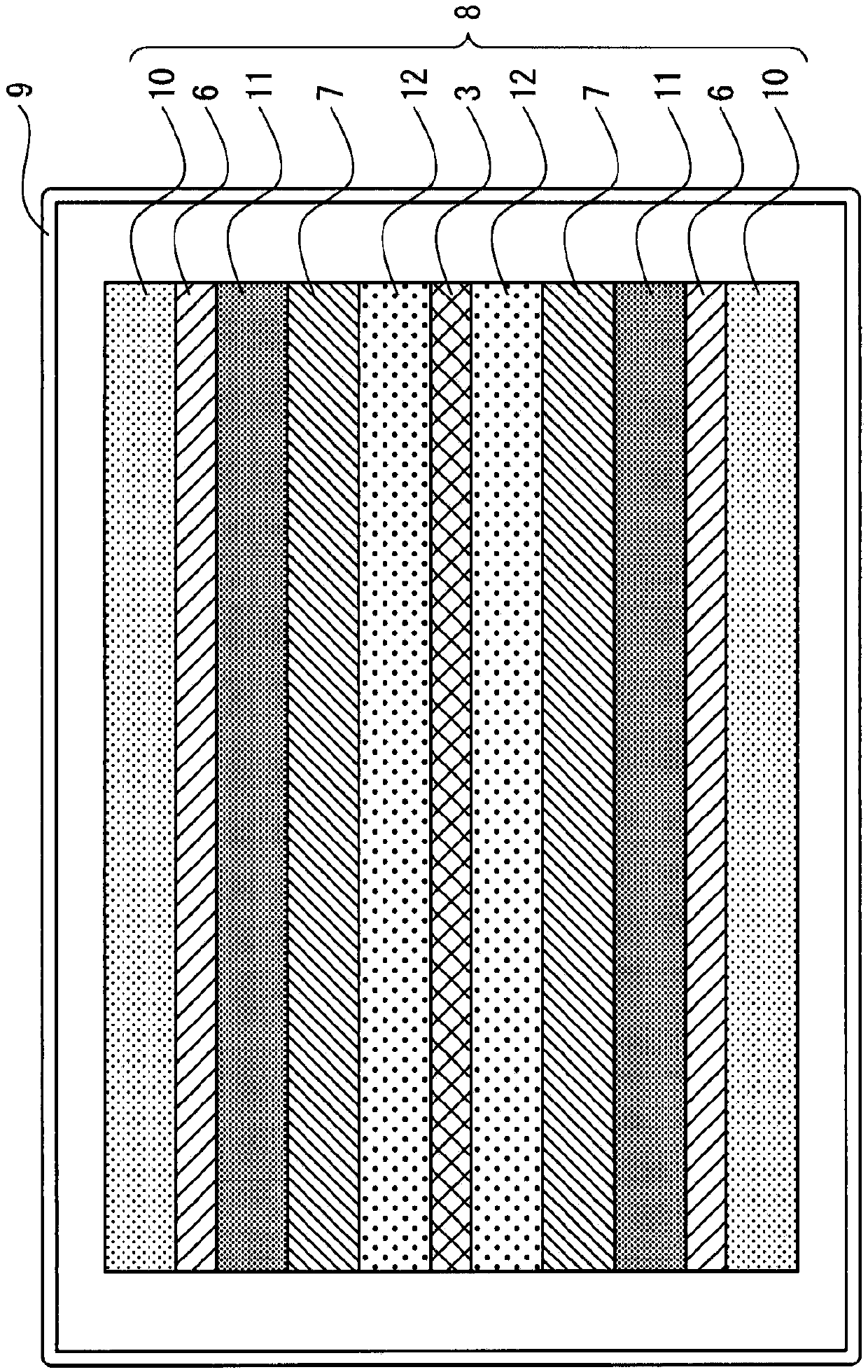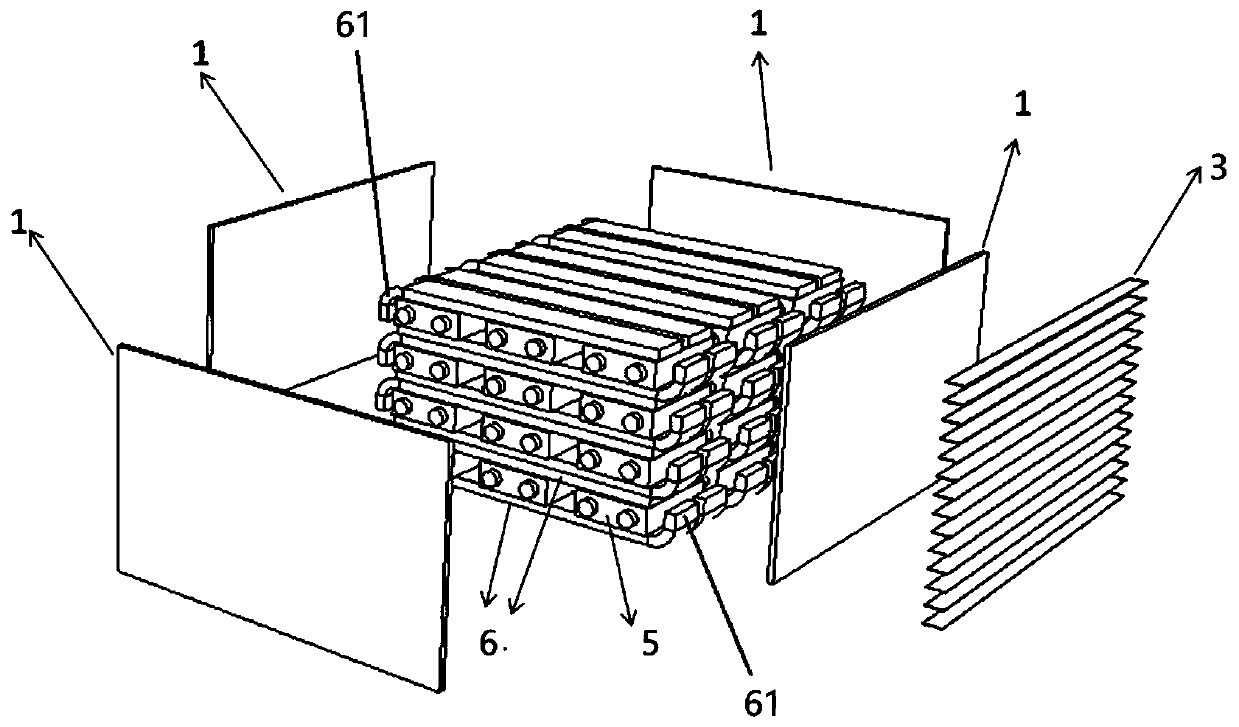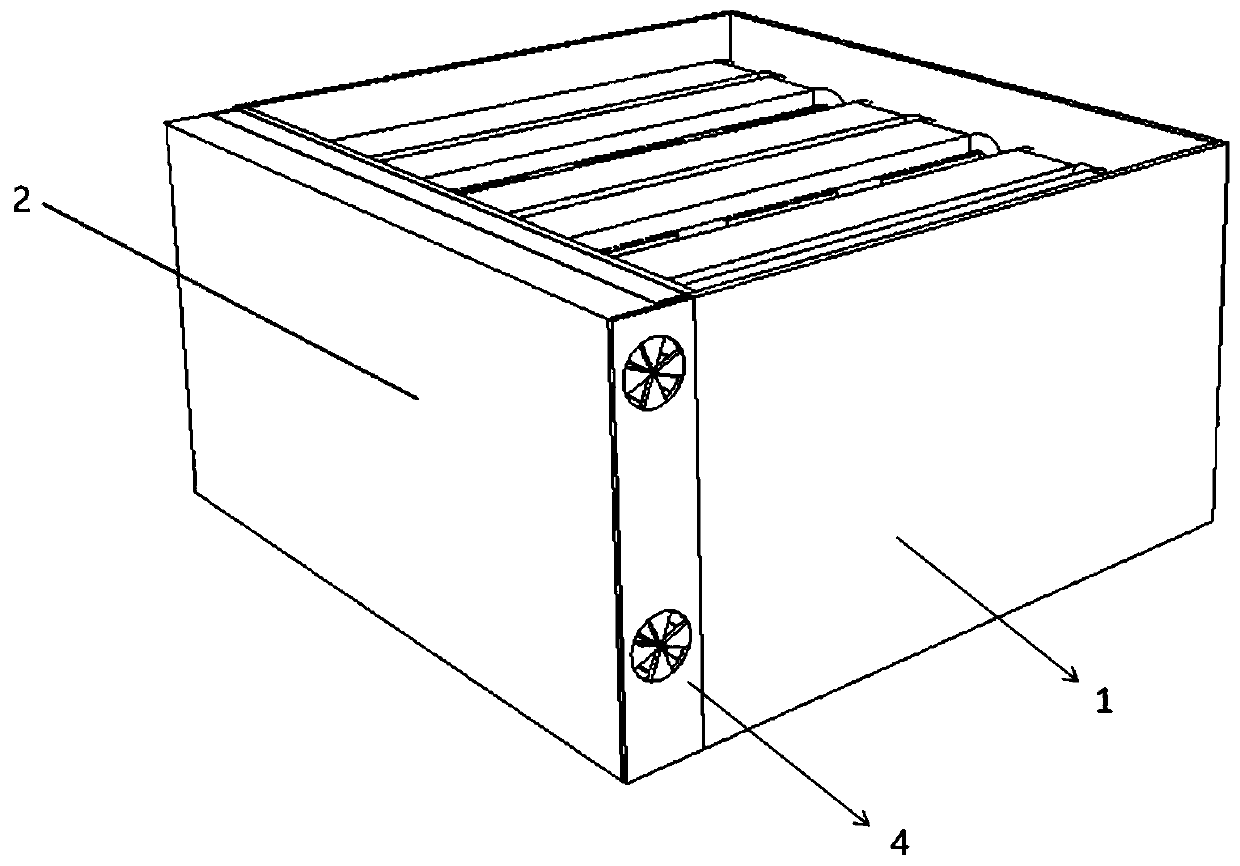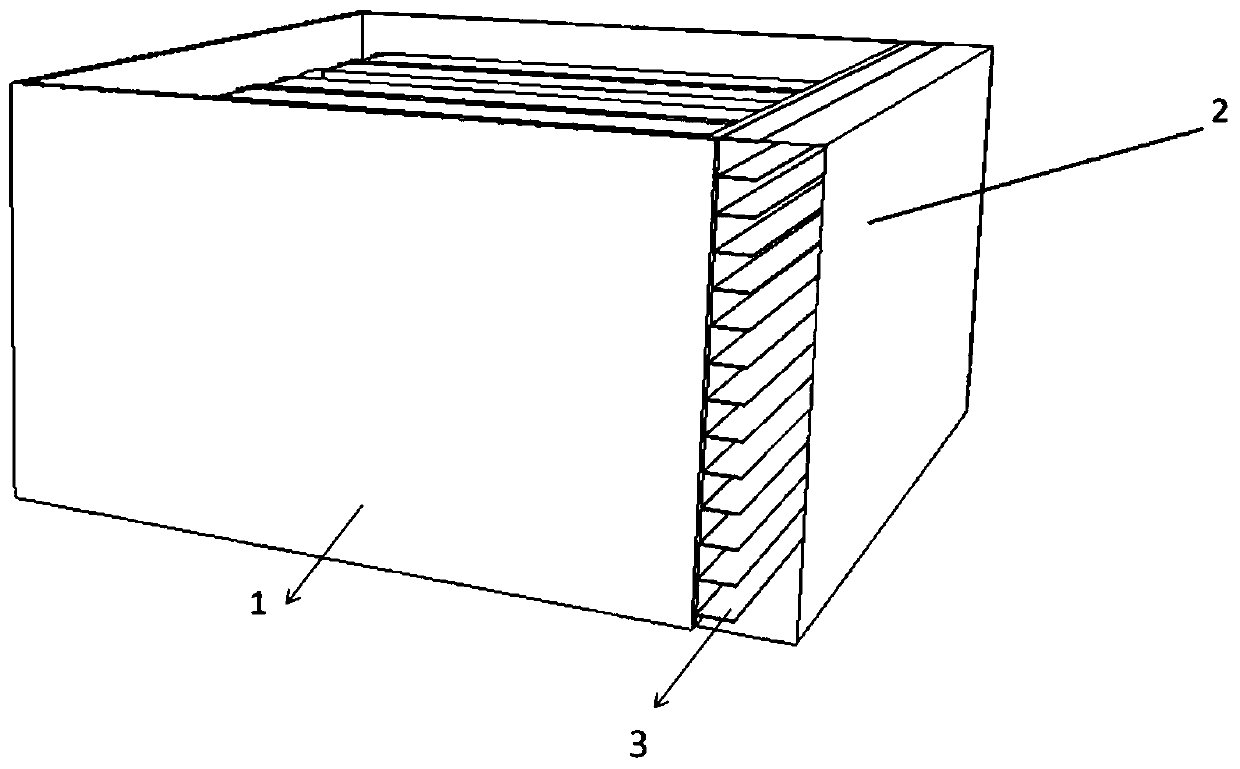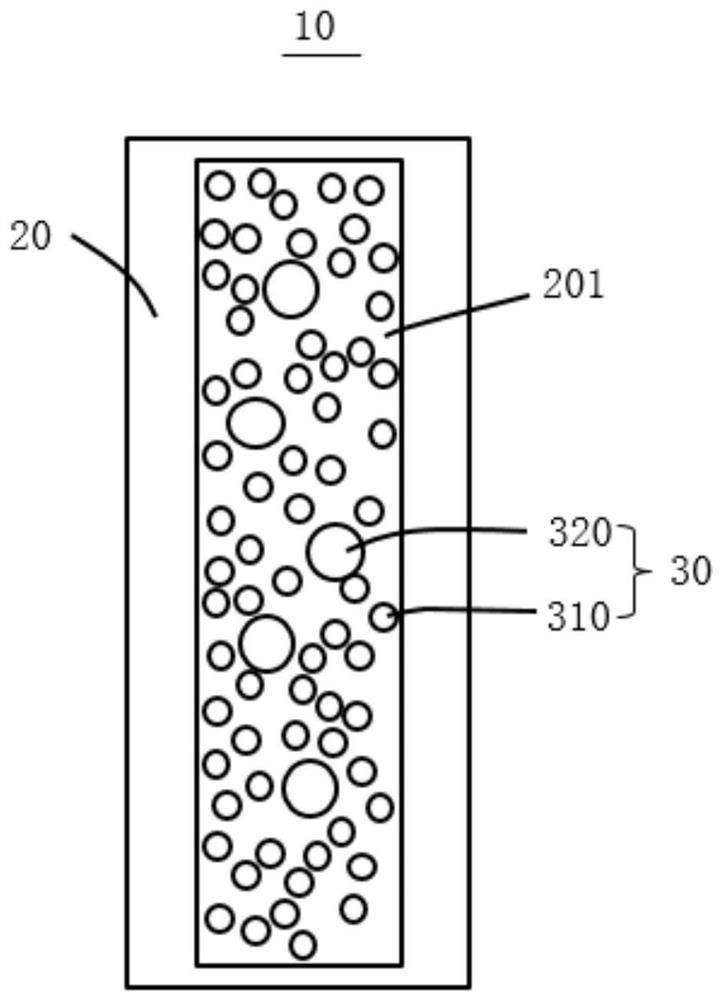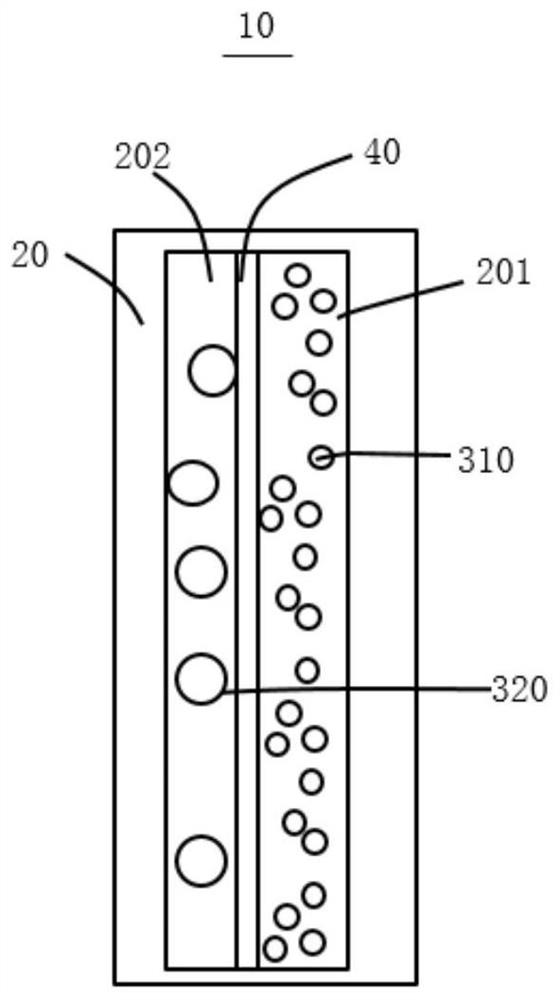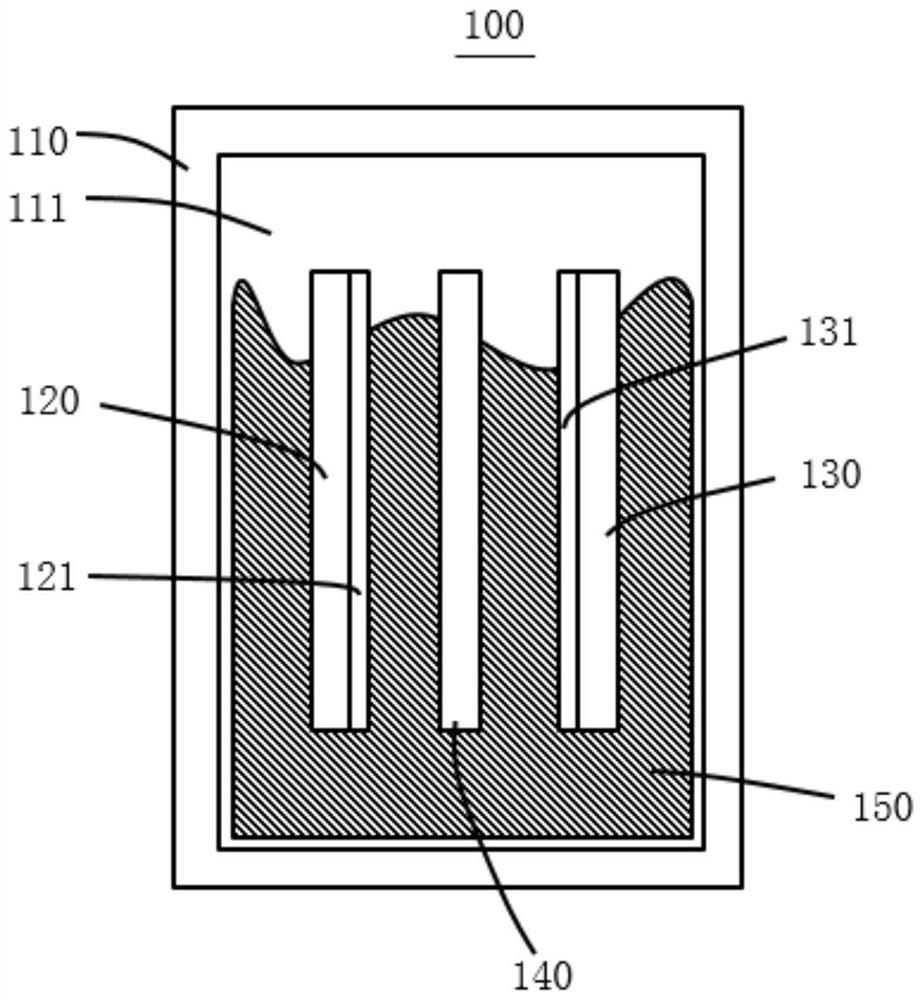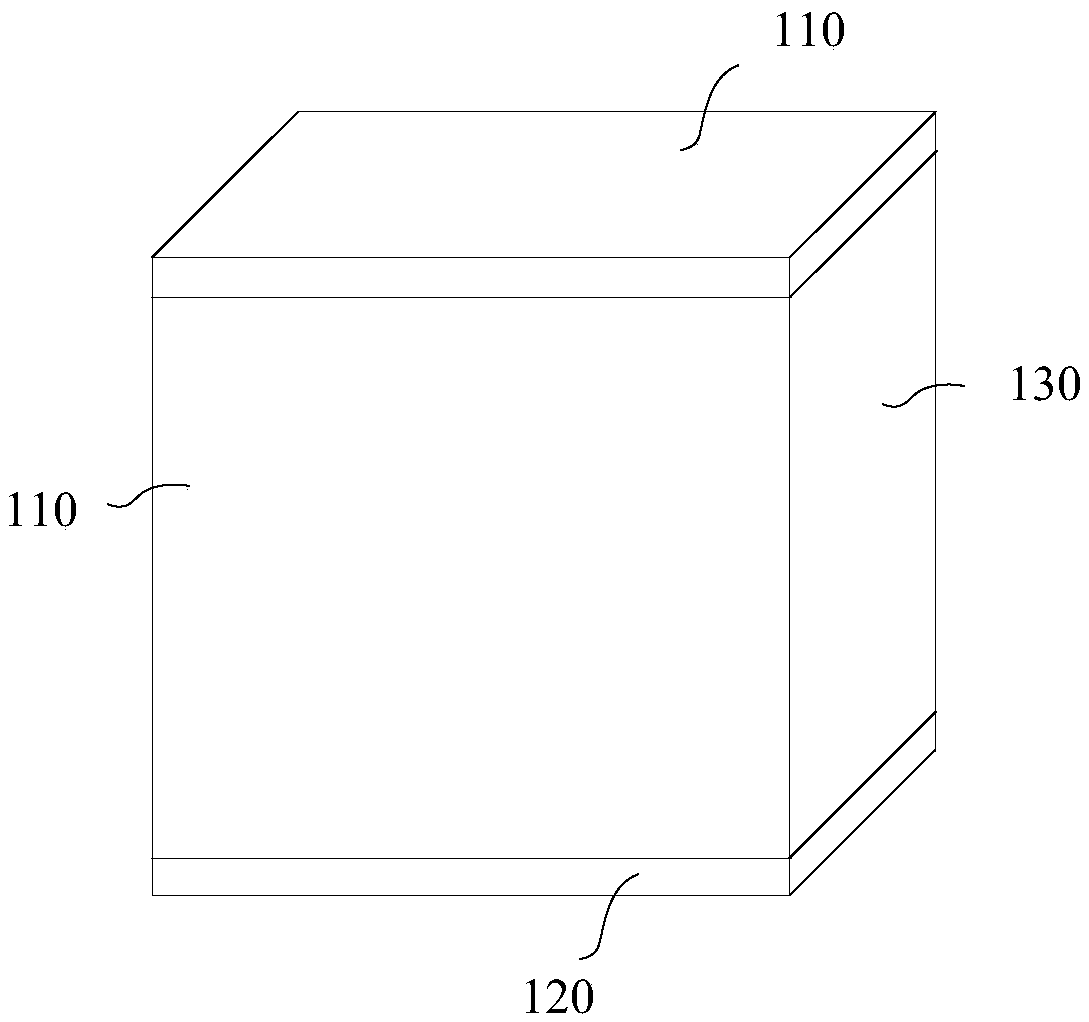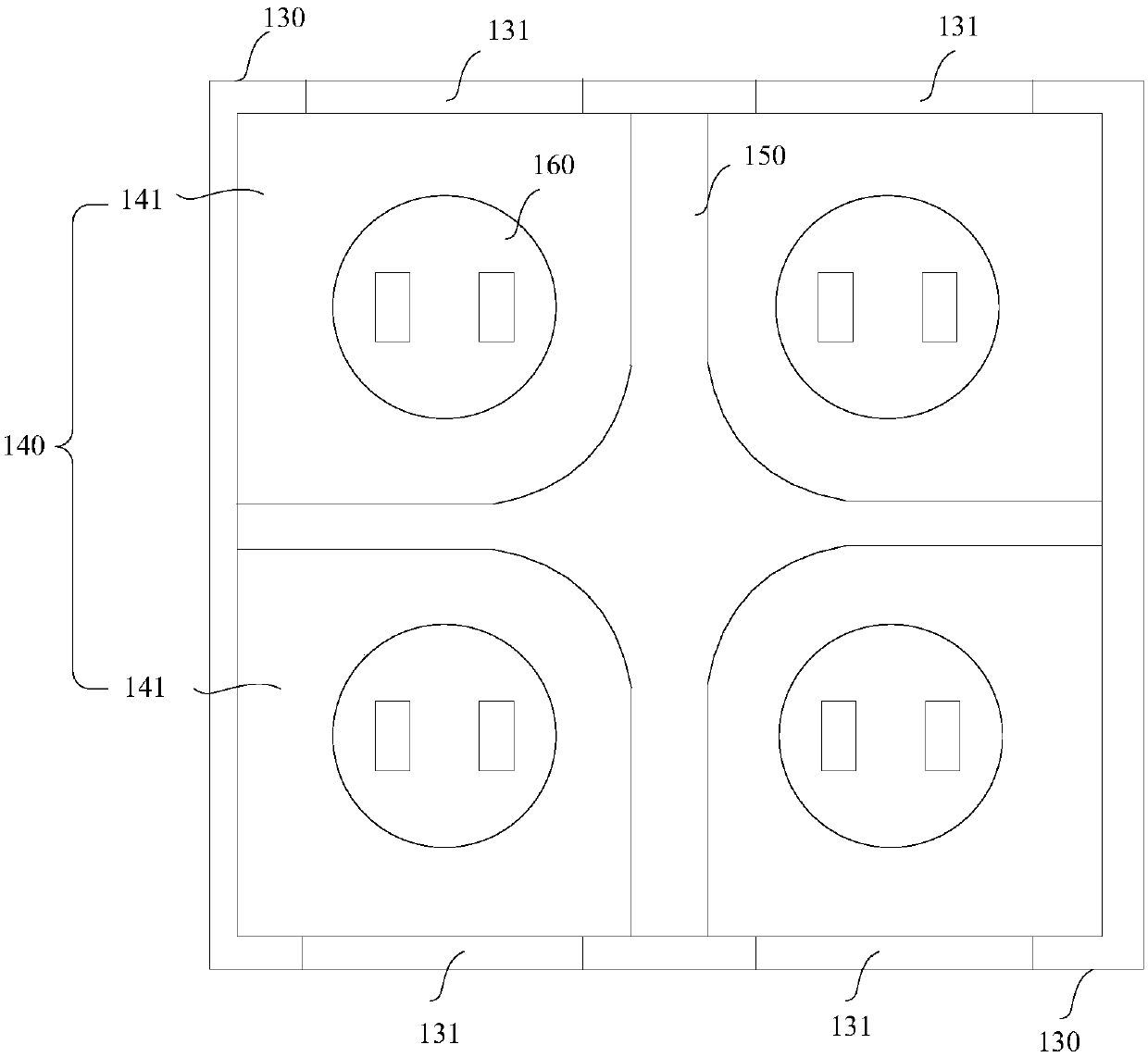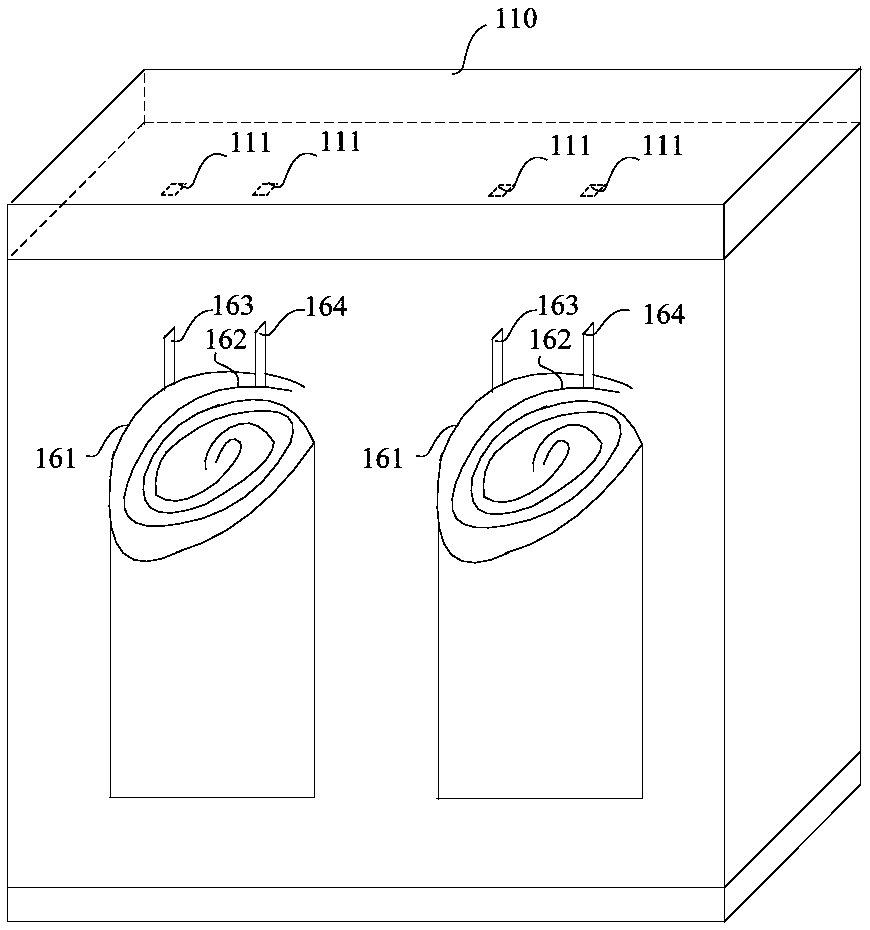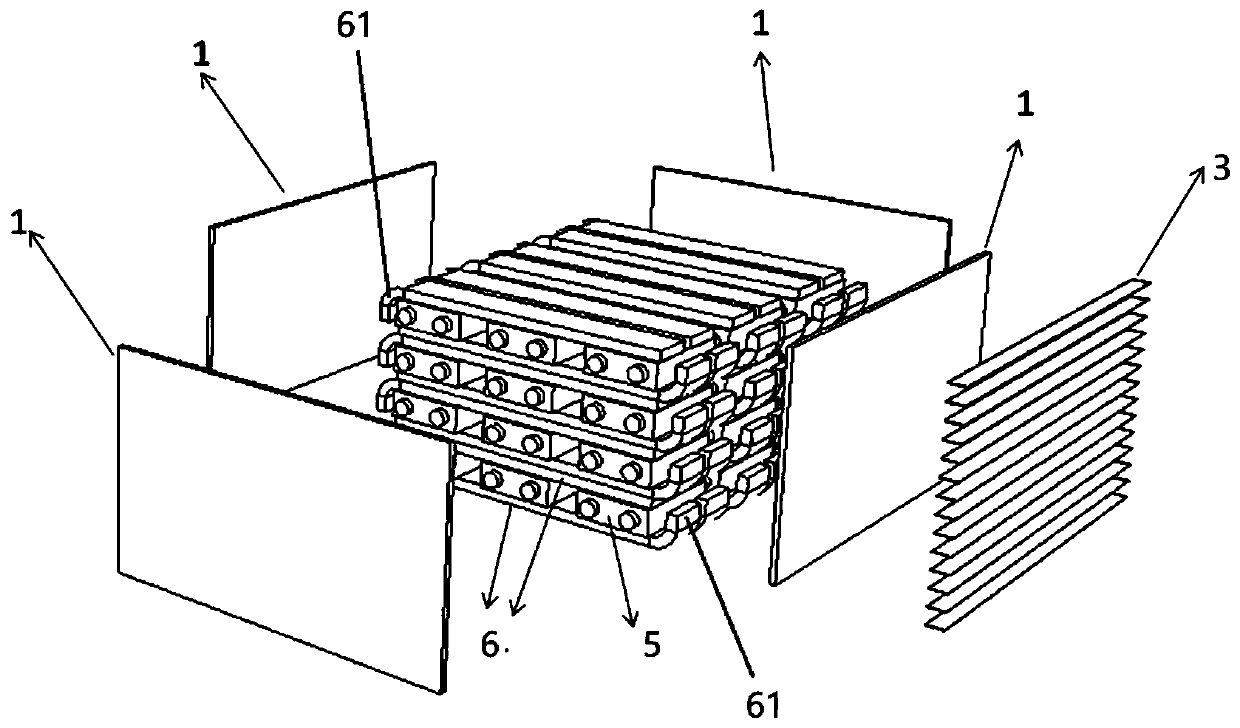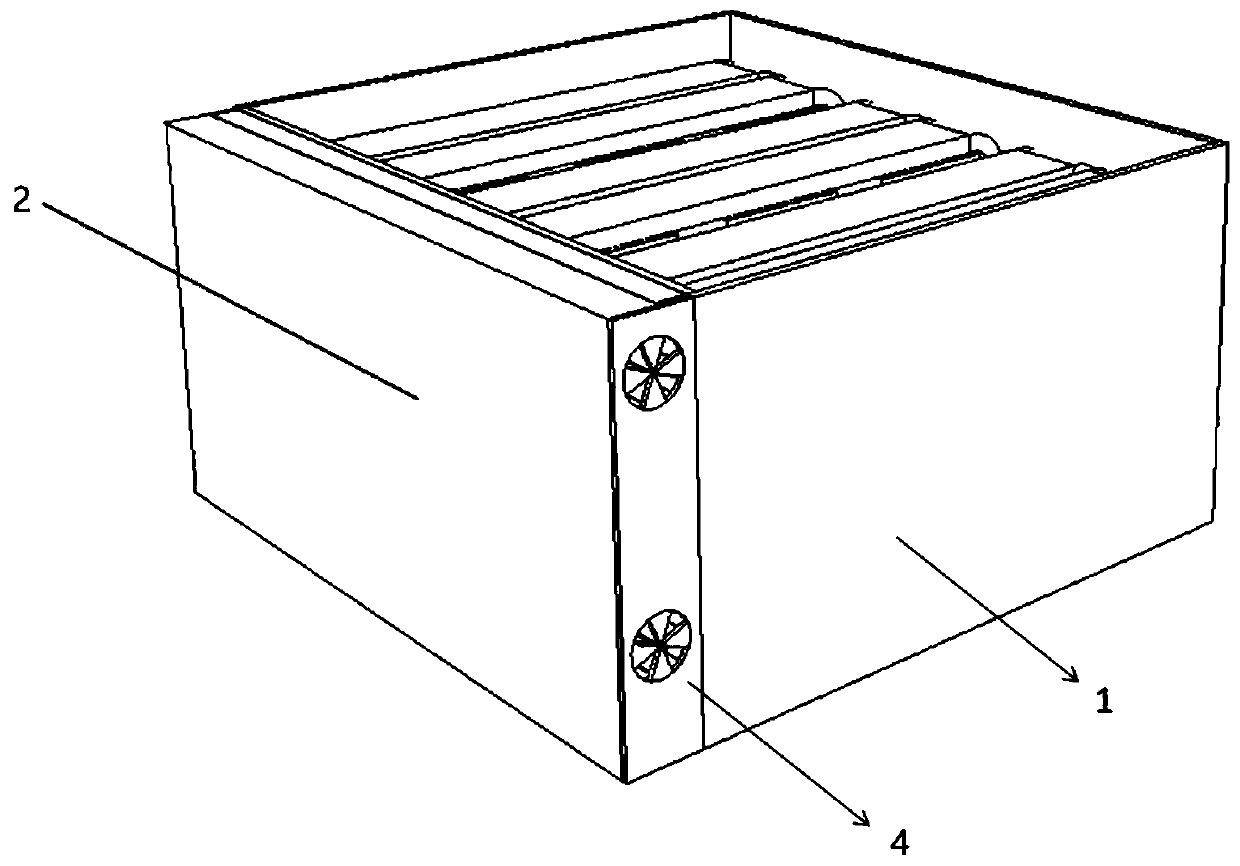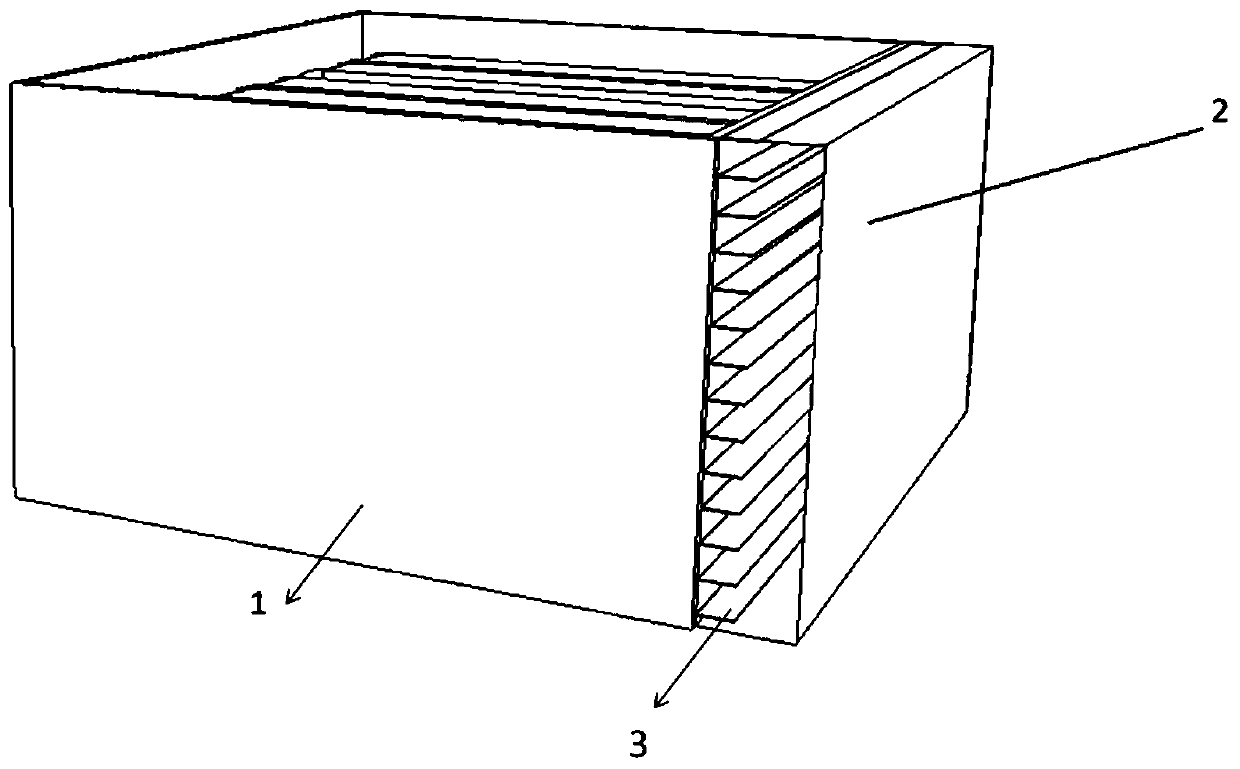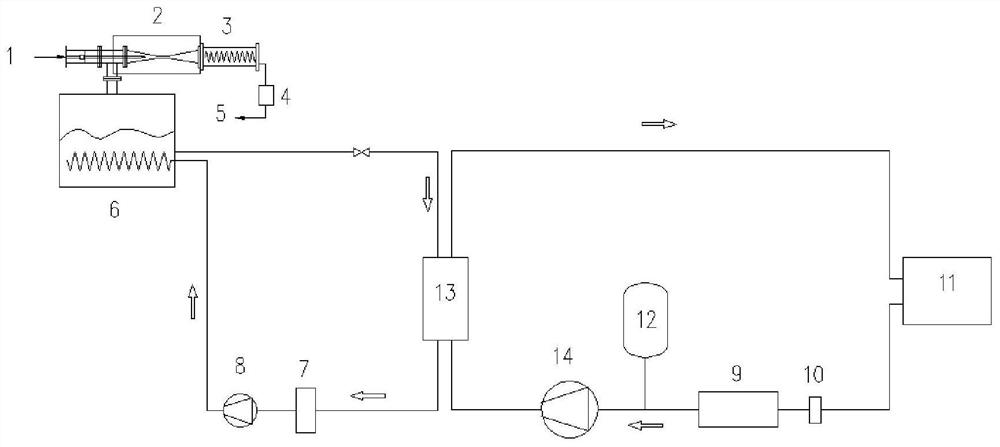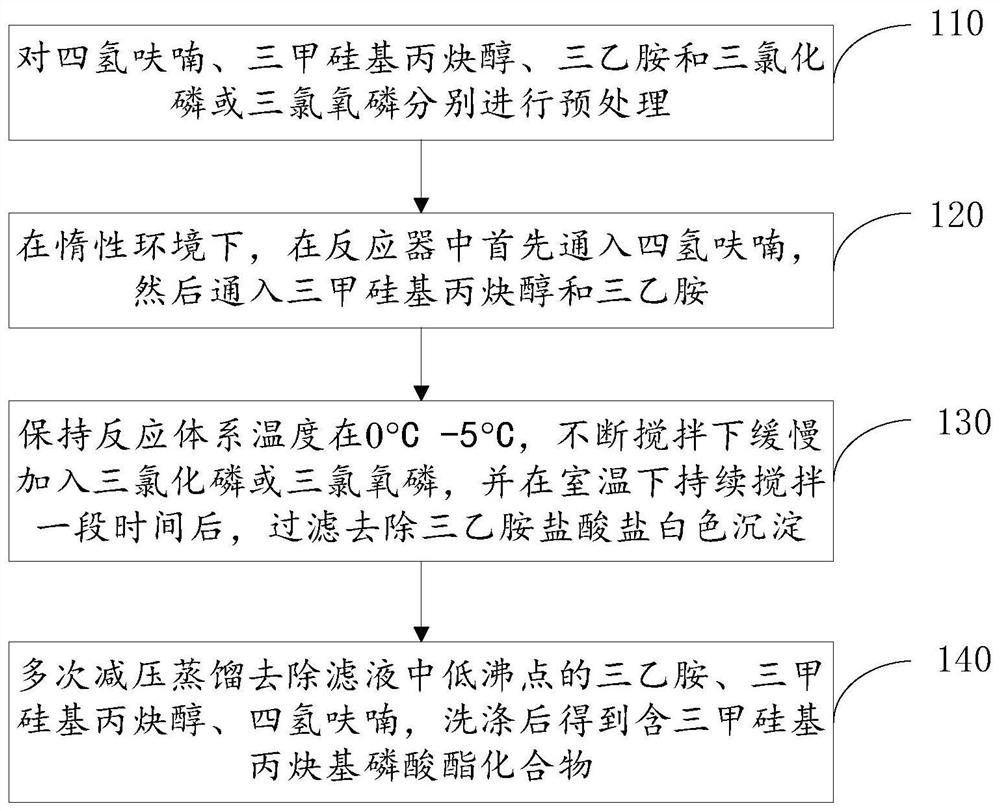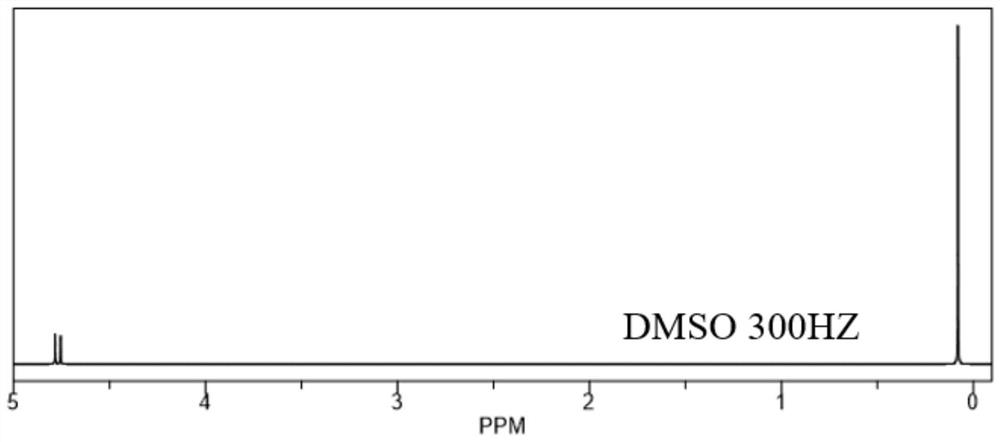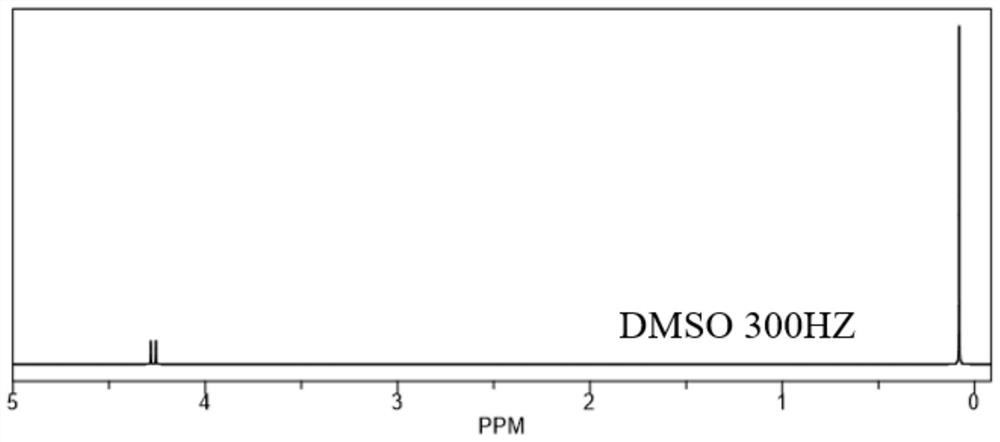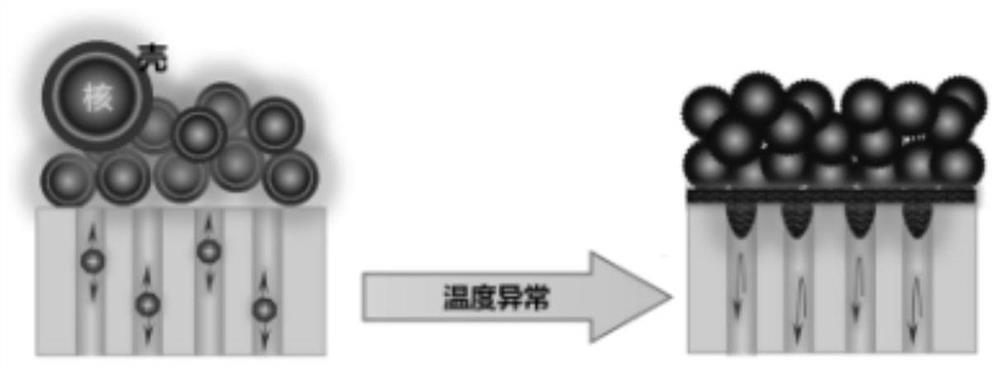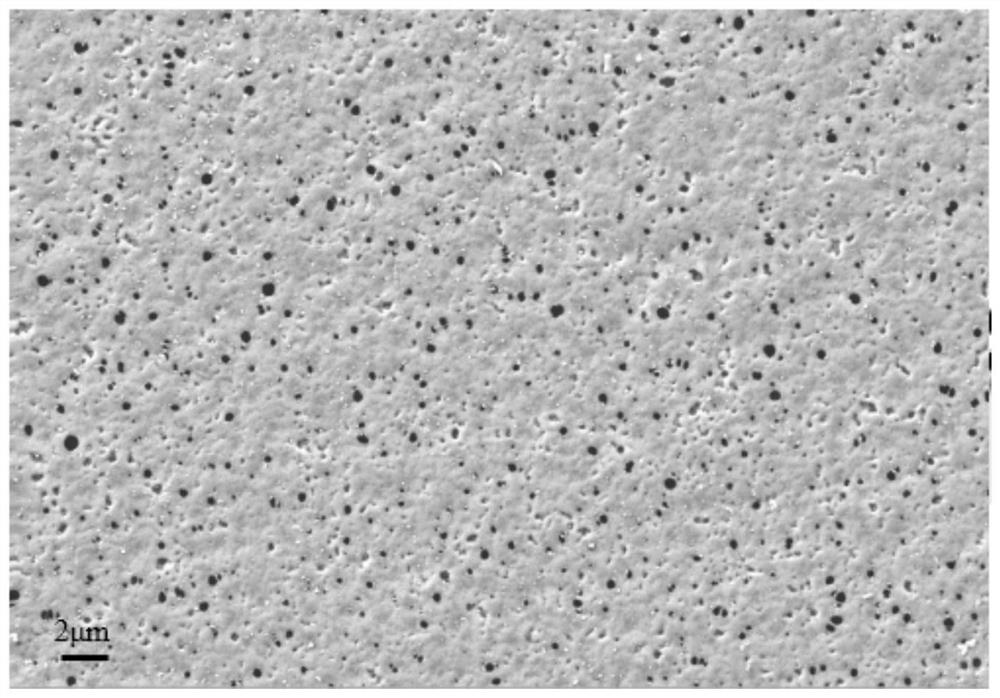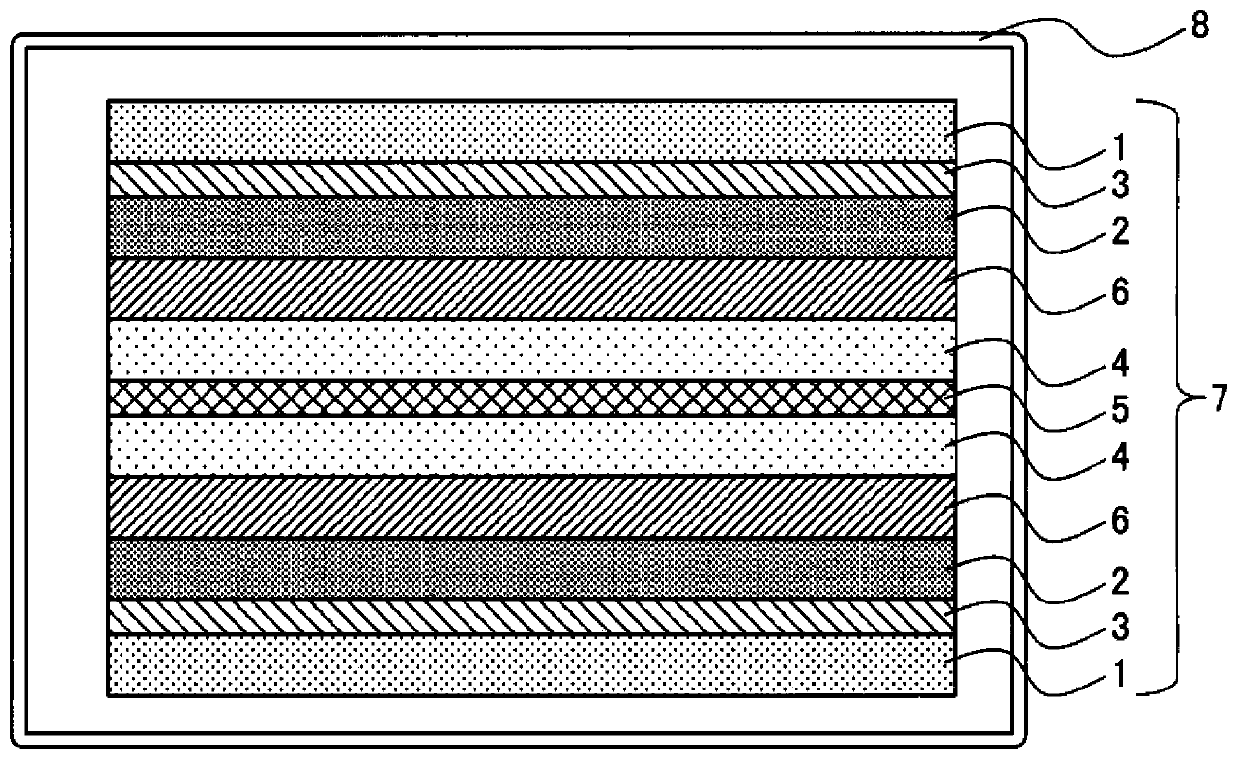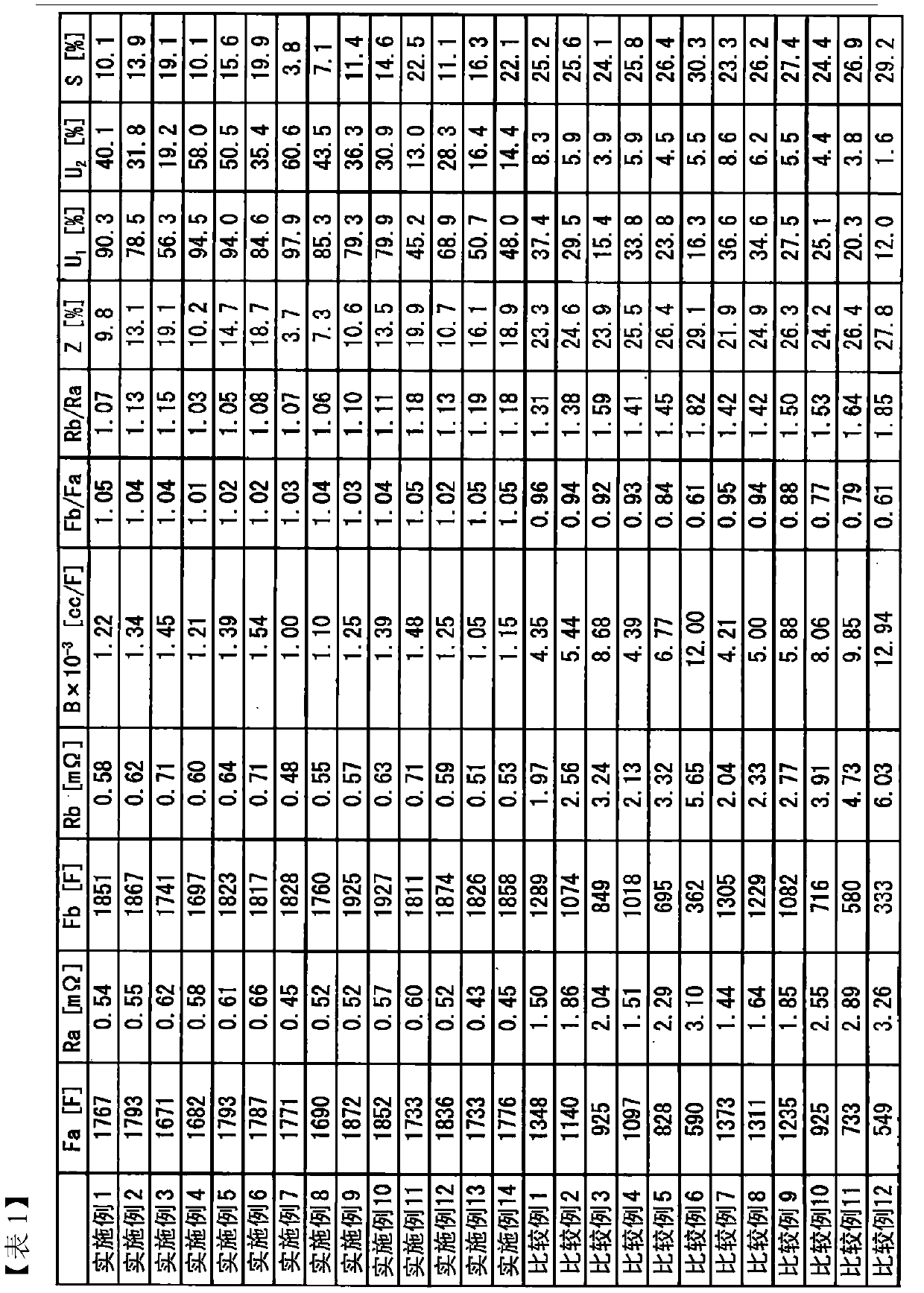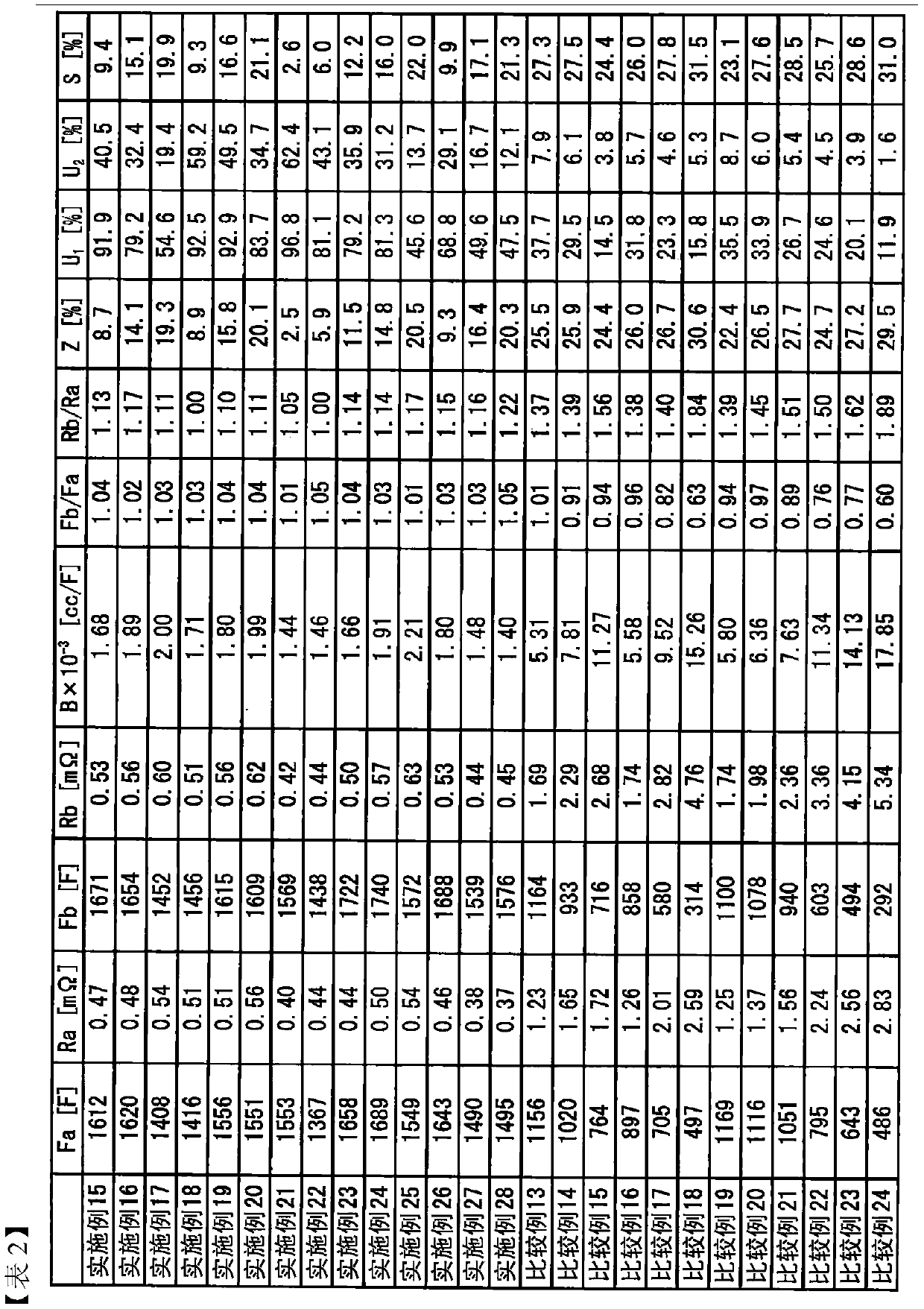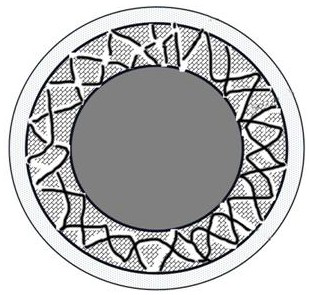Patents
Literature
Hiro is an intelligent assistant for R&D personnel, combined with Patent DNA, to facilitate innovative research.
48results about How to "Inhibit thermal runaway" patented technology
Efficacy Topic
Property
Owner
Technical Advancement
Application Domain
Technology Topic
Technology Field Word
Patent Country/Region
Patent Type
Patent Status
Application Year
Inventor
Electric automobile battery module thermorunaway safety fire extinguishing system and method
InactiveCN106571503AAvoid spreadingSuppression of thermal runaway eventsSecondary cellsFire rescueControl flowFire protection
The invention discloses an electric automobile battery module thermorunaway safety fire extinguishing system. The electric automobile battery module thermorunaway safety fire extinguishing system comprises battery cells (9), a housing (8), a liquid storage tank (4), fire protection valves (2), temperature sensors (5), pressure sensors (6), and a controller (1); a plurality of the battery cells (9) are connected in parallel so as to form a battery unit, and a plurality of the battery units are connected in parallel so as to form a battery module; fire-proof materials (7) are arranged in the housing (8) at equal intervals; the liquid storage tank (4) is used for cooling the battery module; the fire protection valves (2) are used for controlling flowing of liquid; the temperature sensors (5) and the pressure sensors (6) are used for monitoring the temperature and gas signals of the battery module, and sending the temperature and gas signals to the controller; and the controller (1) is used for controlling opening and closing of the fire protection valves (2) based on the temperature and gas signals so as to cool the battery module and inhibit battery cell thermorunaway. The invention also discloses a fire extinguishing method using the electric automobile battery module thermorunaway safety fire extinguishing system. The electric automobile battery module thermorunaway safety fire extinguishing system and the fire extinguishing method are capable of inhibiting thermorunaway of the battery module effectively, and are high in automation degree.
Owner:HUAZHONG UNIV OF SCI & TECH
High-security lithium ion batteries and preparation method thereof
InactiveCN106848383AIsolated contact short circuitPrevent precipitationFinal product manufactureElectrolyte accumulators manufactureLithium metalDissolution
The invention discloses high-security lithium ion batteries and a preparation method thereof. A prepared negative pole piece is coated with a chemically inert organic polymer coating, the organic polymer coating is insoluble in water, and the melting point of the organic polymer coating is 90-110 DEG C. when the lithium ion batteries have thermal runaway of battery internal short circuit caused by destructive crash such as overcharge, heavy stuff impact, thermal shock, short circuit, needling, and extrusion, a polyethylene nanoparticle coating is melted and forms a coating of the surface of the negative pole piece, a protective film is formed in the surface of the negative pore piece, the contact short circuit of a positive pore piece and the negative pore piece can be effectively isolated, the inlay and precipitation of lithium metal ions can be effectively prevented, and therefore the further rise of the temperature due to active substance dissolution and the thermal runaway is restrained, and the overall security property of a cell can be improved obviously.
Owner:SPRINGPOWER TECHNOLOGY (SHENZHEN) CO LTD
Immersed liquid cooling battery pack
PendingCN110729526AInhibit thermal runawayPrevent heat spreadSecondary cellsBatteriesComputer fanEngineering
The invention provides an immersed liquid cooling battery pack. The battery pack includes a case cover, a battery box forming the sealed space with the box cover, a steam guide plate which is a wedge-shaped plate with the middle protruding upwards, a partition plate which is mounted in the middle of the battery box and divides the battery box into an upper box and a lower box, a steam hole which is positioned at the middle of the steam guide plate and is communicated with an upper box and a lower box, two liquid leakage grooves which are formed on two sides of the steam guide plate correspondingly and communicate with the upper box and the lower box, a battery mounted and fixed in the lower box, the cooling liquid which is injected into the lower box to soak the battery, a power fan mounted and fixed on the steam hole on the steam guide plate, a stirring fan which is fixedly arranged at the bottom of the lower box and is soaked by the cooling liquid, a cooling fan mounted and fixed onthe box cover, and a rotating shaft is a rotating shaft which is fixedly mounted by the power fan, the stirring fan and the cooling fan together, wherein the the cooling liquid is low-boiling-point insulating liquid with the boiling point of 30-70 DEG C.
Owner:FUJIAN YIDONGLI ELECTRONICS TECH CO LTD
Paint for inhibiting thermal runaway of lithium ion battery, coating, positive plate, negative plate, diaphragm and lithium ion battery
InactiveCN112029343AInhibit thermal runawayRelease won't blockNon-aqueous electrolyte accumulator electrodesCell component detailsElectrolytic agentMicrosphere
The invention relates to a paint for inhibiting thermal runaway of a lithium ion battery. The paint comprises inhibitor particles, a binder and a solvent, the inhibitor particle is a microsphere witha shell-core structure and comprises a shell, a poisoning agent and a dispersing agent, wherein the poisoning agent and the dispersing agent are wrapped in an inner core; wherein the shell is formed by an organic polymer with the breaking tensile strength of 25MPa to 85MPa; the poisoning agent is reacted with a battery electrolyte or chemical substances in positive and negative electrodes to inhibit thermal runaway of the battery; wherein the dispersing agent has the functions of rapidly gasifying and expanding and enabling the shell to be burst into pieces to release and disperse the poisoning agent when the external temperature reaches a set temperature, and the set temperature is lower than the triggering temperature of thermal runaway of the lithium ion battery. The invention also relates to a coating formed by the paint. The invention further relates to a positive plate, a negative plate, a diaphragm and a lithium ion battery.
Owner:TSINGHUA UNIV
Non-aqueous electrolyte secondary battery and material for use in same
ActiveCN110140245AGet blocking effectImprove high temperature storage testFinal product manufactureSecondary cellsAqueous electrolyteBattery cell
The lithium ion secondary battery according to one embodiment of the present invention comprises, in an electrode, an electrode active material, a conductive auxiliary, and a binding material. The binding material is formed from: a binding component that binds the conductive auxiliary and forms conduction paths between the electrode active material; and a melting point depressant that depresses the melting point of the binding component. The melting point depressant is a PTC-functionality-imparting component that reduces the melting start temperature of the binding material and thereby gives the lithium ion secondary battery PTC functionality. When a conductive foreign substance has generated short circuit heat inside the lithium ion secondary battery, the binding material around the foreign substance is melted, and the conduction paths are cut off.
Owner:MITSUI CHEM INC
Self-destruction structure, electrolyte, electrode, diaphragm and battery
InactiveCN112018445AInhibit thermal runawayImprove securityNon-aqueous electrolyte accumulator electrodesCell component detailsElectrolytic agentElectrical battery
The invention relates to a self-destruction structure, an electrolyte, an electrode, a diaphragm and a battery. The self-destruction structure is used for being accommodated in a battery. The self-destruction structure includes a first shell and a chemical inhibitor. A first space is defined by the first shell. The chemical inhibitor is accommodated in the first space. The chemical inhibitor is used for inhibiting redox reaction during thermal runaway of the battery, and the gasification temperature of the chemical inhibitor is lower than the triggering temperature of thermal runaway of the battery. When the battery is overcharged, overheated and short-circuited, the redox reaction in the battery is accelerated, and a large amount of heat is generated. And the overall temperature of the self-destruction structure rises. The temperature of the chemical inhibitor in the self-destruction structure rises, and the gasification volume expands. The chemical inhibitor breaks through the firsthousing and diffuses to the battery electrolyte. And the chemical inhibitor is used for blocking the redox reaction during thermal runaway of the battery, so that the thermal runaway of the battery isrestrained, and the safety of the battery is improved. The self-destruction structure has important value for the safety design of the lithium ion battery with high specific energy.
Owner:TSINGHUA UNIV
Power source
InactiveCN102217119APass wellImprove cooling effectFinal product manufactureCell temperature controlEngineeringElectrolyte
The disclosed power source is configured by winding a laminate which comprises: a molded body having two or more independent housing holes; a cathode and anode having a collector and a mixture layer disposed on said collector; and a separator sandwiched between said cathode and anode. Said power source has an electrode group housed in each of said housing holes and an electrolyte housed in each of said housing holes. Said electrolyte and either said cathode or said anode of said electrode group contact said molded body.
Owner:PANASONIC INTPROP MANAGEMENT CO LTD
Piston type fire extinguishing device and pressure relief method thereof
The invention discloses a piston type fire extinguishing device and a pressure relief method thereof. The fire extinguishing device comprises a storage tank; the storage tank is provided with a firstcavity; the first cavity is slidably provided with a piston inside; the piston divides the first cavity into a fire extinguishing agent cavity and a drive air chamber; and in the state that the pistonmoves to a preset position in a direction that a space of the fire extinguishing agent cavity becomes smaller, the drive air chamber communicates with the fire extinguishing agent cavity, so that drive air in the drive air chamber enters the fire extinguishing agent cavity and is exhausted from a fire extinguishing agent outlet of the fire extinguishing agent cavity. According to the fire extinguishing device, the drive air in the drive air chamber can finally enter and be exhausted from the fire extinguishing agent chamber, so that the fire extinguishing agent is avoided from remaining in afire extinguishing agent conveying pipeline, the utilization rate of the fire extinguishing agent is increased, the drive air chamber can be timely released, the potential safety hazard of explosion as the drive air chamber is kept in a higher pressure state after fire extinguishing is avoided, and use of the fire extinguishing device is safer and more reliable.
Owner:CNBCC AUTOMOBILE SPARE PART XIAMEN
Perfluorohexanone fire extinguishing method suitable for lithium iron phosphate energy storage battery prefabricated cabin
PendingCN114699677ASolve fire problemsFacilitate mass adoptionFire rescueThermal runawayAutomotive engineering
The invention discloses a perfluorohexanone fire extinguishing method suitable for a lithium iron phosphate energy storage battery prefabricated cabin, which takes a battery cluster as a local application protection unit, takes the whole energy storage battery prefabricated cabin as a total flooding fire extinguishing object, and adopts a perfluorohexanone fire extinguishing mode combining local application and total flooding to extinguish open fire in a firing lithium iron phosphate battery. And the thermal runaway is inhibited. The system can effectively extinguish a fire in the energy storage battery cabin and inhibit thermal runaway development, does not cause harm and damage to a protected object, and does not cause secondary disasters; the energy storage battery cabin is protected in a one-control-one mode, the reliability is high, the manufacturing cost is low, the anti-freezing performance is good, and the application range is wide. Meanwhile, the defects in the prior art can be overcome, the fire protection problem of the lithium iron phosphate energy storage battery prefabricated cabin is solved, and large-scale application of the lithium iron phosphate energy storage battery prefabricated cabin can be promoted.
Owner:CEEC JIANGSU ELECTRIC POWER DESIGN INST
Polyolefin microporous membrane
ActiveCN110785461AInhibit thermal runawayImprove productivitySecondary cellsCell component detailsPolymer sciencePolyolefin
A polyolefin microporous membrane has a piercing elongation of 2.30 mm or lower and the temperature of the stress variation point is 80.0 DEG C or higher and the stress peak value is 1.8 g or lower inthermomechanical analysis (TMA) of the width direction of the polyolefin microporous membrane.
Owner:ASAHI KASEI KK
Solid electrolyte interface membrane-coated negative electrode material composite material, preparation method and use thereof
InactiveCN108134060AImprove structural stabilityImprove thermal stabilityCell electrodesSecondary cellsLithium-ion batteryStructural stability
The invention relates to a solid electrolyte interface membrane (SEI-membrane)-coated negative electrode material composite material, a preparation method and a lithium ion battery adopting the composite material. The solid electrolyte interface membrane is a compact and uniform A1<2>O<3> ceramic membrane. The compact and uniformly-coated SEI membrane is fabricated on surface of the negative electrode material by a solid phase membrane formation method, a liquid phase membrane formation method or a chemical membrane formation method. The negative electrode material coated with the SEI membranehas relatively high structural stability and thermal stability, so that the lithium ion battery by taking the material as the negative electrode shows excellent cycle stability. The pass rate of no ignition and no explosion in an assembled NCM523 ternary flexibly-packaged lithium ion battery acupuncture experiment can reach 100%, so that the thermal runaway of the lithium ion batteries is suppressed effectively and the safety of the lithium ion batteries of short-circuit caused by extreme cases of puncturing and external force and the like can be improved. In addition, the preparation methodof the invention is simple, environmentally-friendly and low in cost, and suitable for large scale production.
Owner:BTR NEW MATERIAL GRP CO LTD
Flame-retardant structure, preparation method thereof and lithium battery structure
PendingCN112652859ACompatible with electrochemical performanceSolve wasteSecondary cellsFire rescueElectrical batteryMicrosphere
The invention relates to the technical field of energy storage, and particularly discloses a flame-retardant structure, a preparation method thereof and a lithium battery structure. The flame-retardant structure comprises a flame-retardant diaphragm layer and a polyethylene microsphere film layer, wherein the flame-retardant diaphragm layer comprises an organic polymer layer and a flame retardant arranged in the organic polymer layer; and the polyethylene microsphere film layer comprises a mixture of polyethylene microspheres and an organic solvent and is arranged on the outer surface of the flame-retardant diaphragm layer. When the flame-retardant structure is applied to the lithium battery, the lithium battery still has certain discharge capacity in the thermal runaway process of the lithium battery, and the polyethylene microsphere film layer in the flame-retardant structure can be molten to cover the surface of the negative electrode of the battery along with continuous temperature rise of the lithium battery, so that transmission of lithium ions is blocked, and thermal runaway is inhibited. When the temperature rises continuously, the flame retardant in the flame-retardant diaphragm layer is released, so that the electrolyte is non-flammable, fire and explosion are avoided, the anode and cathode materials can still be recycled, and the problem of resource waste is solved. In addition, the flame-retardant structure is compatible with electrochemical performance of the battery.
Owner:SHENZHEN POWER SUPPLY BUREAU
Current collector, electrode, and non-aqueous electrolyte secondary battery
ActiveCN110291669AInhibit thermal runawayIncrease resistanceFinal product manufactureElectrode carriers/collectorsAqueous electrolytePolyvinylidene difluoride
Provided is a non-aqueous electrolyte secondary battery in which a conductive layer having a PTC function is formed on the surface of a current collector used in the non-aqueous secondary battery, such that the resistance of the conductive layer increases in response to an instantaneous temperature rise in the battery. This current collector is characterized in that the current collector is provided with a conductive substrate, and a conductive layer including a conductive filler and a binding material on at least one surface of the conductive substrate; the binding material includes polyvinylidene fluoride (PVDF) as a binding component, and a PTC function-imparting component; the PTC function-imparting component, when coexisting with a non-aqueous electrolyte, decreases the fusion start temperature and / or the fusion peak temperature of the binding material as measured by differential scanning calorimetry compared to those when only a binding component is used, and therefore, a characteristic in which resistance increases with a rise in temperature is imparted to the conductive layer.
Owner:MITSUI CHEM INC
Lithium secondary battery
InactiveCN101689675ADamage suppression or mitigationInhibit thermal runawayFinal product manufactureLi-accumulatorsEngineeringLithium-ion battery
A lithium secondary battery wherein thermal runaway due to short circuit within the battery can be suppressed. In this lithium secondary battery, a positive electrode (3) having a positive electrode active material for adsorbing and discharging lithium ions, a negative electrode (4) for adsorbing and discharging lithium ions, a dummy positive electrode (6) connected to a positive electrode terminal, and a dummy negative electrode (7) connected to a negative electrode terminal are laminated alternately. A dummy laminate (9) having a short circuit separator (8) for insulation between the dummy positive electrode (6) and the dummy negative electrode (7) is also provided and laminated on the outside of the positive electrode (3) and the negative electrode (4) laminated alternately.
Owner:MITSUBISHI HEAVY IND LTD
Fire extinguishing system of battery pack, and control method
ActiveCN112604206AEffectively extinguishInhibit thermal runawayFire rescueBatteriesThermodynamicsProcess engineering
The invention belongs to the technical field of battery pack safety protection, and particularly relates to a fire extinguishing control method of a battery pack. The fire extinguishing control method of the battery pack comprises the steps of calibrating a preset spraying amount and a thermal diffusion signal threshold value; acquiring a thermal runaway signal and occurrence time when thermal runaway occurs in the battery pack, wherein the occurrence time is the time for acquiring the thermal runaway signal; acquiring a thermal diffusion signal based on the thermal runaway signal and the occurrence time; and adjusting the running time and the running power of a water pump in the battery pack based on the spraying amount calibration according to the thermal diffusion signal and the thermal diffusion signal threshold value. By adopting the technical scheme, the actual spraying amount is adjusted according to each thermal diffusion, and flames generated by each thermal runaway are effectively extinguished; and cooling liquid is stored in a spraying subsystem, and thermal runaway caused by subsequent thermal diffusion can be restrained.
Owner:CHONGQING JINKANG POWER NEW ENERGY CO LTD
Nonaqueous secondary battery and nonaqueous secondary battery pack
InactiveCN102347462AInhibit thermal runawaySuppress smokeFinal product manufactureCell component detailsMetalElectrolyte
The invention provides a nonaqueous secondary battery and a nonaqueous secondary battery pack that are extremely safe, being unlikely to emit smoke or explode even when a nail penetrates the battery in a charged state. In a flat nonaqueous secondary battery (10), an electrode assembly formed by stacking or winding a positive electrode and a negative electrode with a separator interposed therebetween is sealed in a laminated outer body (11) together with a nonaqueous electrolyte, and a positive electrode tab (12) and a negative electrode tab (13) are led out from the laminated outer body (11). The separator has a rupture elongation of 50% or more in at least the TD direction or the MD direction. A metal plate (14) connected to the positive electrode tab (12) is placed on an outer principal surface (15) of the laminated outer body (11).
Owner:SANYO ELECTRIC CO LTD
Battery pack thermal safety structure, battery pack thermal management system and vehicle
ActiveCN112151710ASecurity pressureInhibit thermal runawaySecondary cellsCell component detailsThermal runawayAutomotive engineering
The invention provides a thermal safety structure of a battery pack. The thermal safety structure comprises a battery box body, a thermal safety pipeline and a pressure relief structure, wherein the thermal safety pipeline is arranged on the battery box body; the thermal safety pipeline comprises a cooling liquid inlet and at least two jet orifices, the cooling liquid inlet is communicated with anexternal cooling system, the jet orifices are located in the battery box body and located on the lower portion of the battery box body, and a first valve located between the cooling liquid inlet andthe jet orifices is arranged on the thermal safety pipeline; the pressure relief structure is arranged on the battery box body. The invention further provides a battery pack thermal management systemwhich comprises a battery manager and the battery pack thermal safety structure. A vehicle is also provided. The low-temperature and low-pressure liquid cooling liquid sprayed out of the cooling liquid is in contact with the high-temperature single battery and then is quickly evaporated into a gas state, the gas cooling liquid can fully exchange heat with the single battery in the gradual rising process, and the temperature of the single battery can be quickly reduced along with continuous spraying and vaporization heat absorption of the cooling liquid; and thermal runaway of the single battery is effectively inhibited.
Owner:BYD CO LTD
Hydrated salt thermal chemical heat storage composite material as well as preparation method and application thereof
PendingCN114539983AThermal Runaway MitigationInhibit thermal runawaySecondary cellsHeat-exchange elementsBattery cellComposite material
The invention discloses a hydrated salt thermal chemical heat storage composite material as well as a preparation method and application thereof. The hydrated salt thermochemical energy storage composite material with excellent thermochemical heat storage performance, good heat conduction performance and compression resistance is obtained by compounding hydrated salt, a high-heat-conduction material and a reinforcing material. The composite material can be filled in a battery module, and when the battery is subjected to thermal runaway due to electric abuse, mechanical abuse and thermal abuse, the thermal runaway of the battery can be relieved and the thermal runaway of the battery can be prevented from spreading. Besides, the invention provides a thermochemical heat storage principle which can be used for battery thermal runaway protection, and a simple model for describing a material thermochemical heat storage process is constructed, so that the temperature of the battery can be quickly and reasonably estimated, and the use amount of a composite material in a module can be optimized.
Owner:SOUTH CHINA UNIV OF TECH
Nonaqueous lithium storage element
ActiveCN108475586AReduce generationInhibit thermal runawayHybrid capacitor electrodesFinal product manufactureLithium compoundElectrode
A lithium storage element contains a positive electrode that contains a lithium compound other than an active material, a negative electrode, a separator, and a non-aqueous electrolytic solution containing lithium ions, for which an active material is applied on both surfaces of a nonporous positive electrode collector, and a negative electrode active material capable of storing and releasing lithium ions is applied on both surfaces of a nonporous negative electrode collector. The relationships 0.85<=Cx1 / Cy1<=1.15, 0.85<=Ax1 / Ay1<=1.15, 0.80<=(Ax1+Cx1) / (Ay1+Cy1)<=1.20, 0.1<=Cx2 (g / m2)<=18, 0.1<=Cy2 (g / m2)<=18, 0.60<=Cy2 / Cx2<=1.70, and 0.60<=Cx2 / Cy2<=1.70 are satisfied, where Cx1 is the basis weight of the positive electrode active material layer Cx surface, Cy1 is the basis weight of the other positive electrode active material layer Cy surface, Ay1 is the basis weight of the negative electrode active material layer Ay surface facing opposite the Cy surface, Ax1 is the basis weight of the other negative electrode active material layer Ax surface, Cx2 is the lithium compound amount per area of the Cx surface, and Cy2 is the lithium compound amount per area of the Cy surface.
Owner:ASAHI KASEI KK
Air-cooling lithium battery pack thermal management system and method with high protection level
InactiveCN110137407AInhibit thermal runawayAvoid excessive heatSecondary cellsCell component detailsThermal runawayClose contact
The invention provides an air-cooling lithium battery pack thermal management system and method with a high protection level. The system comprises a battery pack, a battery pack casing and an externalair-cooling module. A micro heat pipe array is attached to the surface of a battery or a battery module, and a protruding portion of the micro heat pipe array is attached to the battery pack shell. The external air-cooling module is in close contact with the outer surface of the battery pack outer casing, the external air-cooling module has an air-cooling fin inside and a fan at a side. Accordingto the invention, the micro heat pipe array with high heat transfer and an air cooling mode are effectively combined, the heat inside the battery can be effectively transmitted to the outside, the temperature is prevented from being too high, the uniform temperature of the battery is ensured, the heat dissipation efficiency is high. The control system can automatically start the fan, the externalair-cooling fin automatically dissipate heat to achieve un-cooling energy-saving heat dissipation, the automatic heat dissipation is carried out when the battery is heated during the parking of an electric vehicle, and major safety risks such as thermal runaway are greatly suppressed.
Owner:赵耀华 +1
Sandwich electrode and battery
ActiveCN112018390AInhibit thermal runawayImprove securityNon-aqueous electrolyte accumulator electrodesSecondary cells servicing/maintenanceElectrolytic agentBattery cell
The invention relates to a sandwich electrode and a battery. The sandwich electrode includes an electrode shell and a chemical inhibitor. A first space is defined by the electrode shell. The chemicalinhibitor is accommodated in the first space. The gasification temperature of the chemical inhibitor is lower than the triggering temperature of thermal runaway of the battery. Before the battery is subjected to thermal runaway, the chemical inhibitor is gasified and expanded and breaks through the electrode shell. The chemical inhibitor diffuses to the battery electrolyte. The chemical inhibitoris used for inhibiting oxidation-reduction reaction during thermal runaway of the battery, so that the rate of heat generated in the battery is reduced, and heat accumulation is avoided. And furthermore, the sandwich electrode improves the safety of the battery.
Owner:TSINGHUA UNIV
Lithium ion battery pack
PendingCN109585738AReduce volumeSlow reaction rateCells structural combinationCell component detailsChemical reactionEngineering
The application provides a lithium ion battery pack including a housing, a bracket and a plurality of battery cells. The housing includes a top cover plate, a bottom cushion plate, and a plurality ofwall plates connected end to end. Each wall plate is provided with a window door in order that the battery cells can freely enter and exit the housing through the window doors. On the one hand, the lithium ion battery pack provided by the present application is provided with the bracket in the housing to divide the storage space in the housing into a plurality of separately closed sub-receiving spaces, thereby greatly reducing the reaction volume of the electrolyte inside the lithium ion battery pack during thermal runaway, greatly reducing the reaction rate of the electrolyte, and further suppressing the further development of the thermal runaway. On the other hand, the window doors are disposed on the wall plates of the housing, the battery cells in the lithium ion battery pack can be moved out of the housing through the window doors during the thermal runaway, thereby avoiding further intense chemical reactions inside the lithium ion battery pack.
Owner:TSINGHUA UNIV
High-protection-level air-cooled lithium battery pack thermal management system and method
PendingCN110707259ALeak will notSo as not to damageSecondary cellsCell component detailsThermodynamicsEngineering
The invention discloses a high-protection-level air-cooled lithium battery pack thermal management system and method. The system comprises one or more layers of batteries and / or battery modules in thebattery pack, a battery pack shell and an external air cooling module, wherein the battery and / or the upper surface and / or the lower surface are / is attached to a micro heat pipe array, the part attached to the surface of the battery and / or the battery module is an evaporation section, at least one end of the micro heat pipe array extends out of the surface of the battery and / or the battery module, and the extending part serves as a condensation section to be attached to a battery pack shell; the battery pack shell surrounds the battery pack and is of a closed structure, and at least the position, corresponding to the condensation section, of the battery pack shell is provided with a heat conduction partition plate; the external air cooling module is tightly attached to the outer surface of the face, provided with the heat conduction partition plate, of the battery pack shell, air cooling fins are arranged in the external air cooling module, and a fan is arranged on the side face of the external air cooling module. The heat dissipation efficiency is high, the risk of liquid pollution is avoided, and the protection level is high.
Owner:赵耀华 +1
Water cooling system of thermal power plant energy storage system and working method
PendingCN113540619AInhibit thermal runawayImprove system securitySecondary cellsThermal runawayProcess engineering
The invention discloses a water cooling system of a thermal power plant energy storage system, and a method. According to the invention, cold water in an evaporator and hot water in a thermal control device are subjected to heat exchange through a heat exchanger, so that thermal runaway of an energy storage system can be effectively restrained, and the system safety is greatly improved; a steam pipeline can effectively utilize low-grade steam of a thermal power plant, so that the energy consumption is low, and the heat dissipation efficiency is high; through liquid cooling, heat dissipation is uniform, the temperature difference of a battery core can be reduced, and the service life of the battery core is prolonged; and the stable work of the energy storage system in an environment of -40 DEG C to 60 DEG C can be met.
Owner:XIAN TPRI BOILER ENVIRONMENTAL PROTECTION ENG CO LTD
Trimethylsilyl-containing propynyl phosphate compound and preparation method and application thereof
ActiveCN111925389AEasy to storeImprove cycle performanceSilicon organic compoundsFinal product manufactureAlkaneAryl
The invention relates to a trimethylsilyl-containing propynyl phosphate compound and a preparation method and application thereof, the structural general formula of the trimethylsilyl-containing propynyl phosphate compound is shown in the specification, and R1 and R2 are selected from one of Si atom-containing compounds, alkane groups, aryl groups or heteroaryl groups.
Owner:TIANMU LAKE INST OF ADVANCED ENERGY STORAGE TECH CO LTD
Battery diaphragm, preparation method thereof and battery
ActiveCN113113721AAppropriate pore size distributionAppropriate thicknessCell component detailsSecondary cells servicing/maintenanceOrganic solventPhysical chemistry
The invention relates to the technical field of batteries, in particular to a battery diaphragm, a preparation method thereof and a battery. The preparation method comprises: loading the core-shell structure composition on a porous and heat-shrinkage-free polymer base membrane, wherein a core body in the core-shell structure composition is made of a metal organic framework material, and a shell layer is made of a polymer material with a melting point of 150-220 DEG C. The method for preparing the porous and heat-shrinkage-free polymer-based membrane comprises the following steps: dissolving an organic polymer which contains polar groups and is resistant to 250-500 DEG C in a first organic solvent to prepare a liquid membrane; swelling the liquid film by using a second organic solvent, and dissolving out the first organic solvent to form pores, so as to prepare a porous gel-state film; and stretching the porous gel-state membrane and then placing the membrane in a solvent to stabilize the structure and the shape so as to prepare the polymer-based membrane. The prepared battery diaphragm does not generate thermal shrinkage, and can effectively prevent gas from shuttling between electrodes. The invention also provides a battery diaphragm and a battery comprising the battery diaphragm.
Owner:TSINGHUA UNIV
High-safety lithium ion battery and preparation method thereof
ActiveCN114171779ARaise the onset temperature of self-heatingImprove thermal stabilityFinal product manufactureCell component detailsElectrolytic agentElectrical conductor
The invention belongs to the technical field of batteries, and particularly relates to a high-safety lithium ion battery and a preparation method thereof. The battery comprises a shell and a battery cell, the battery cell comprises a positive pole piece, a diaphragm, a negative pole piece and an electrolyte; the positive pole piece contains an inorganic flame-retardant component, the diaphragm is composed of multiple layers, one side, close to the positive pole, of the base material is a coating composed of a polymer with a gel function and a fast ion conductor, and the polymer with the gel function contains a certain flame retardant; the electrolyte contains 0.1 to 0.8 wt% of a fluorine-containing flame retardant with a surfactant function, 0.1 to 3 wt% of a boron-containing additive, 0.1 to 3 wt% of a sulfur-containing additive and 1 to 5 wt% of a pentafluorocyclotriphosphazene additive. The battery has good safety characteristics of preventing overcharge, overdischarge, short circuit and the like, thermal runaway can be effectively inhibited, the safety of the battery is improved, meanwhile, the electrical performance of the battery is not influenced, and the cycle performance of the battery is facilitated.
Owner:CHINA ELECTRONIC TECH GRP CORP NO 18 RES INST +1
Non-aqueous lithium storage device
ActiveCN108475588BInhibit excessive decompositionInhibitionHybrid capacitor separatorsHybrid capacitor electrolytesElectrolytic agentPhysical chemistry
An object of the present invention is to provide a non-aqueous lithium storage device capable of suppressing excessive decomposition of a lithium compound remaining in a positive electrode, suppressing gas generation at high voltage, and suppressing capacity reduction during high-load charge-discharge cycles. The non-aqueous lithium storage element of the present embodiment includes a positive electrode, a negative electrode, a separator, and a non-aqueous electrolyte solution, the positive electrode containing a lithium compound other than an active material, the non-aqueous electrolyte solution containing lithium ions, wherein the surface of the positive electrode passes through In the element distribution image obtained by SEM‑EDX, the area repetition rate U of the fluorine distribution image obtained by binarization based on the average value of the luminance value relative to the oxygen distribution image 1 40% or more and 99% or less.
Owner:ASAHI KASEI KK
Sandwich electrodes and batteries
ActiveCN112018390BInhibit thermal runawayImprove securityNon-aqueous electrolyte accumulator electrodesSecondary cells servicing/maintenanceElectrolytic agentRedox
The application relates to a sandwich electrode and a battery. The sandwich electrode includes an electrode casing and a chemical inhibitor. The electrode casing encloses a first space. The chemical inhibitor is accommodated in the first space. The gasification temperature of the chemical inhibitor is lower than the trigger temperature of the thermal runaway of the battery. The chemical inhibitor vaporizes and expands, breaking through the electrode casing before thermal runaway of the battery occurs. The chemical inhibitor diffuses into the battery electrolyte. The chemical inhibitor is used to inhibit the oxidation-reduction reaction when the battery is thermally out of control, reduces the heat generation rate inside the battery, and avoids heat accumulation. Furthermore, the sandwich electrode improves the safety of the battery.
Owner:TSINGHUA UNIV
A double-coated lithium battery positive electrode material and preparation method thereof
ActiveCN112670514BImprove stabilityMake up for easy dissolutionTantalum compoundsCell electrodesCarbon layerElectrical conductor
The invention provides a double-coated lithium battery positive electrode material and a preparation method thereof. The double-coated lithium battery positive electrode material has a core-shell structure, and the chemical formula of the core material is LiNi x co y mn z o 2 , where x>0.8, y>0, z>0, x+y+z=1; the shell material is composed of two layers, wherein the inner layer is a porous fast ion conductor lithium salt, and the pores of the porous fast ion conductor lithium salt A carbon layer is deposited inside, and the carbon layer is formed by carbonization of a binder; the outer layer is a high-molecular polymer, and the positive electrode material prepared by the present invention has two coating layers on the outside, and the porous fast ion conductor enhances the conductivity, and the high The molecular film can prevent the porous fast ion conductor from corroding and falling off during the cycle, and the addition of the binder not only increases the interlayer bonding force, but also further carbonizes into a carbon layer, making the material have a higher cycle retention rate and better performance. safety performance.
Owner:TIANJIN B&M SCI & TECH
Features
- R&D
- Intellectual Property
- Life Sciences
- Materials
- Tech Scout
Why Patsnap Eureka
- Unparalleled Data Quality
- Higher Quality Content
- 60% Fewer Hallucinations
Social media
Patsnap Eureka Blog
Learn More Browse by: Latest US Patents, China's latest patents, Technical Efficacy Thesaurus, Application Domain, Technology Topic, Popular Technical Reports.
© 2025 PatSnap. All rights reserved.Legal|Privacy policy|Modern Slavery Act Transparency Statement|Sitemap|About US| Contact US: help@patsnap.com
